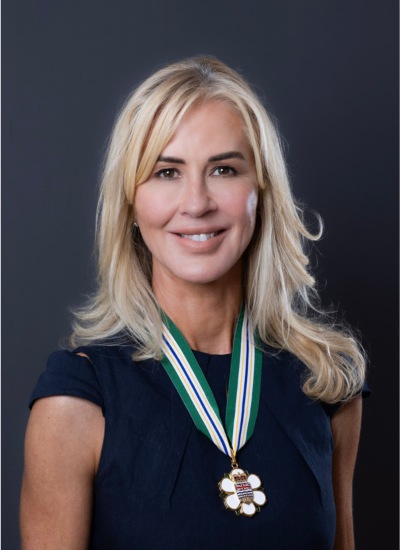Members of the Order of British Columbia: P–S
M–O < Previous
Next > T–Z
Browse honourees by last name, letters P through S. Search for a name using 'Ctrl+F' to jump to a specific recipient. Bios reflect achievements at time of appointment.
An asterisk (*) indicates that the recipient is deceased.
P
Patricia Kathleen Page *
Patricia Kathleen (P.K.) Page was one of this country’s outstanding writers and poets. She published over 20 books and long been recognized internationally. In 2001, her poem Planet Earth was selected by the United Nations as a centrepiece of a year-long Dialogue Among Civilizations Through Poetry for international broadcast by satellite. Her paintings are less well-known, signed with her married name of Irwin. Her art hangs in permanent collections at the National Gallery, and in the art galleries of Ontario, Vancouver, Victoria and Windsor. Among her awards are: six honorary doctorates; Officer of the Order of Canada, 1977; Companion of the Order of Canada, 1999; and the Queen’s Golden Jubilee Medal, 2002.
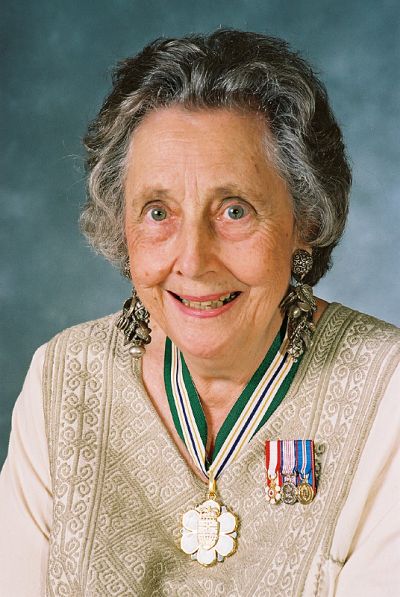
- Year: 2003
- City: Victoria
- Region: Vancouver Island/Coast
- Category: Arts and Culture
Susan I. Paish
Over nearly four decades, Susan (Sue) Paish has supported and inspired thousands of British Columbians and excelled to the highest level in law, business, community and health care.
During Paish’s esteemed law career, she became a leader in the development of human-rights protections and law, and was one of the first Canadians appointed as an independent workplace ombudsperson. At Russell DuMoulin (now Fasken), she co-led the first dedicated human-rights practice in a major Canadian law firm with her then law partner Patricia Janzen. In addition, Paish was the one of the first women in Canada to become a managing partner of a major law firm and the youngest in British Columbia. Paish led the firm through a transformational merger, taking it from one office in B.C. to nine offices on three continents. In recognition of her profound contributions, UBC’s faculty of law awarded Paish a distinguished alumni award in 2008. She also received the prestigious Queen’s Counsel (now King’s Counsel) designation in 2001.
Over and above her achievements in law, business and community, Paish is a trailblazer for women. Sue was the fourth woman to chair the Vancouver Board of Trade in 122 years, co-founding the Board of Trade’s Women’s Leadership Circle and spearheading numerous programs for women.
She was also chair of the Business Council of B.C. and the sole female director on various corporate boards. In recognition of her inspirational leadership, Paish received Influential Women in Business’s lifetime achievement award in 2018 and a YWCA Women of Distinction Award in 2016, and was inducted into WXN’s Top 100 Most Powerful Women Hall of Fame in 2012.
Paish has dedicated herself to improving the health and safety of Canadians. She was the first female CEO of Pharmasave, a leading independent pharmacy and drug store retailer, introducing technologies such as accessing medication information online, while significantly expanding the organization’s national footprint.
In 2007, Paish became the first woman on the board of directors of LifeLabs, Canada’s largest diagnostic medical laboratory. In 2012, she became the first female CEO of LifeLabs, leading the introduction of the first non-invasive pre-natal testing for pregnant people in Canada, online access to test results and other technologies leveraged across the health-care continuum, while doubling the size of the company in her first year.
Throughout her career, Paish has strived to innovate. In 2018, Paish became the first CEO of Canada’s Digital Technology Supercluster, dedicated to bringing together hundreds of private and public-sector organizations of all sizes to solve some of industry and society’s biggest problems with Canadian-made technologies. Through collaborative innovation and a unique co-investment model, her bold leadership is helping drive solutions better and faster than any single organization could on its own and is putting B.C. at the forefront of world-leading digital technology development.
For example, one of the cluster’s projects is improving access to ultrasound services for British Columbians across rural, remote and Indigenous communities. Using AI-supported hand-held mobile ultrasound devices , health-care workers from Haida Gwaii to the Gulf Islands can rapidly receive potentially life-saving patient information through remote ultrasound scans. During the COVID-19 pandemic, the cluster supported the development of remote X-ray technology that allowed physicians across the country to rapidly identify lung abnormalities indicating COVID-19. This technology has be adapted so a broad range of remote X-ray services are available in communities where citizens would otherwise need to travel hundreds of kilometres.
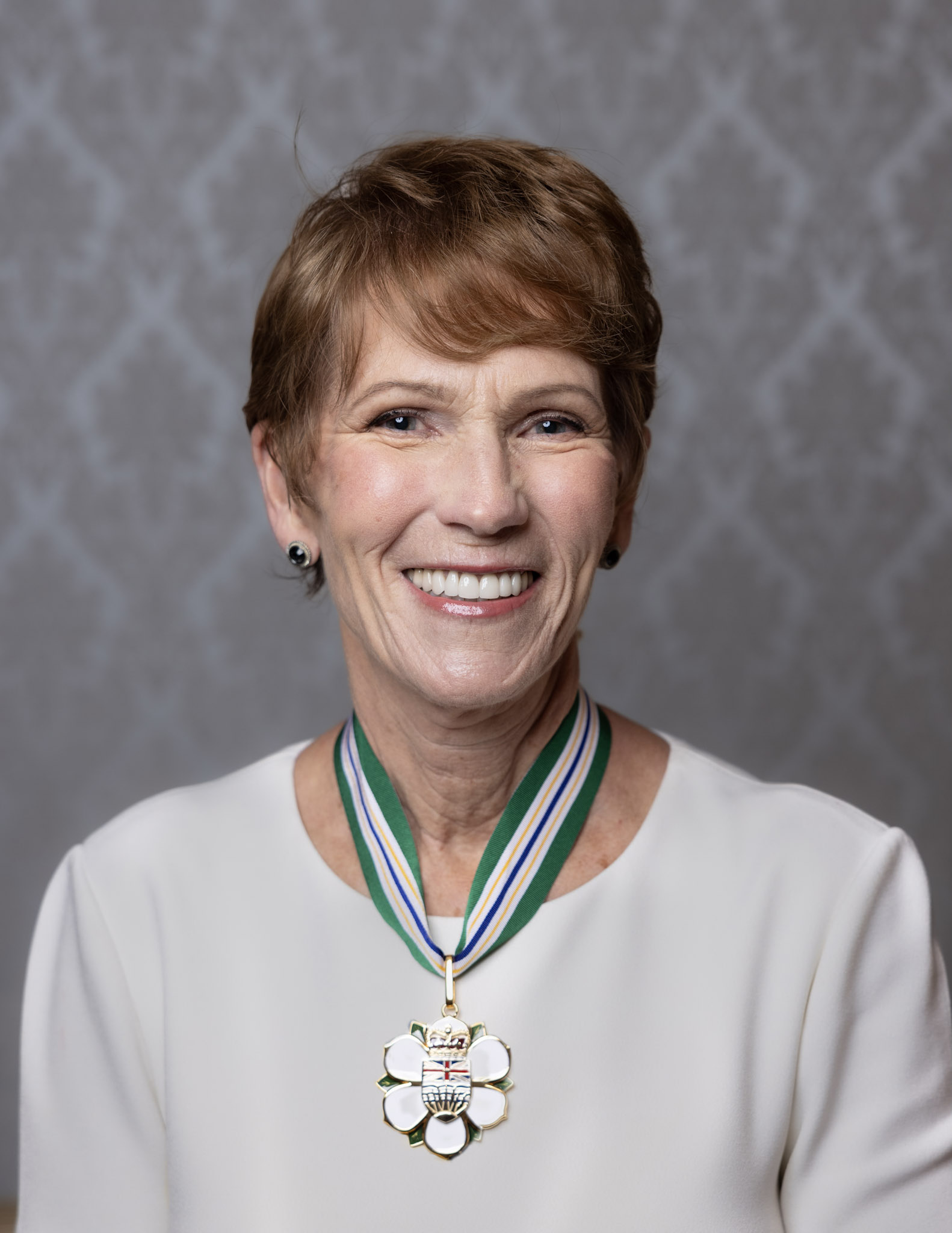
- Year: 2023
- City: North Vancouver
- Region: Mainland/Southwest
- Category: Industry
James (Jim) Allen Pattison
From his birth in modest circumstances in rural Saskatchewan to Chairman, President, CEO and sole proprietor, all rolled into one, Jimmy Pattison is a uniquely Canadian entrepreneur.
The Jim Pattison Group, with over ten thousand employees, is involved in transportation, communications, food products, packaging and financial services with “Ripley’s Believe It Or Not” thrown in for good measure.
From age 12 onward, Jimmy Pattison honed his extraordinary entrepreneur skills on the one thing he liked best – selling – first, garden seeds, then at UBC he would look for a used car in the classified ads every night, buy it for perhaps two hundred dollars, drive it out to the campus, sell it to a fellow student for two hundred and fifty dollars and take the bus home that evening. After that, a share in his first GM dealership – Bow Mac – and the rest is history.
Perhaps his greatest contribution to the Province was his genius in insuring that EXPO ’86 World’s Fair was an unparalleled success. Although others may have had the initial vision for Expo ’86, it was Jimmy Pattison who was the expediter – the one more than anyone else who made it happen. He demanded much of his team but no more than he himself was prepared to give. This he did, almost full-time over a five-year period, without compensation, and in spite of the demands of his own burgeoning business empire.
Mr. Pattison, through EXPO ’86 and his business expertise, has brought kudos and credibility to British Columbia. He has helped to showcase Vancouver as one of the major centres of the world.
On his office wall this statement appears: “There is no limit to what a man can do or where he can go if he doesn’t mind who gets the credit.”
Today, Jimmy Pattison gets the credit.
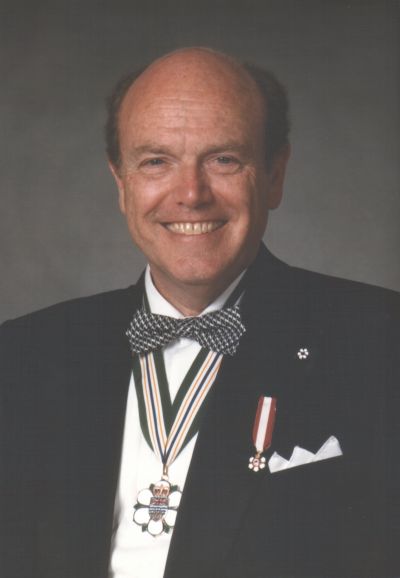
- Year: 1990
- City: Vancouver
- Region: Mainland/Southwest
- Category: Business
Myfanwy Spencer Pavelic *
Myfanwy Pavelic‘s portraits and paintings document succeeding generations of artists, musicians, composers and statesmen, from Yehudi Menuhin to Pierre Trudeau. Her work has been exhibited from Victoria to the National Gallery in London, England; and her philanthropy helped many people and organizations in Victoria and beyond.
Among the beneficiaries were the Victoria Symphony, the University of Victoria, the Art Gallery of Greater Victoria, the Sooke Fine Arts Organization, Sanscha Hall in Sidney and the Metchosin Summer School of the Arts.
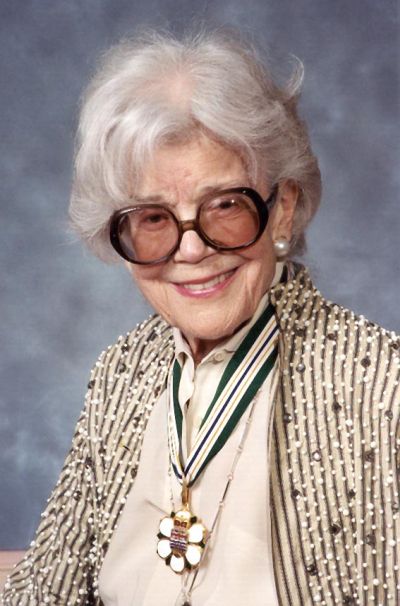
- Year: 2001
- City: Sidney
- Region: Vancouver Island/Coast
- Category: Arts and Culture
Dr. George Pedersen
Dr. George Pedersen‘s career in public education has spanned 49 years. He has been president of Simon Fraser University, the University of British Columbia and the University of Western Ontario; interim president of the University of Northern British Columbia; and founding president of Royal Roads University.
In 1998, Pedersen became the chancellor of the University of Northern British Columbia, a position he currently holds. He has also been active in community, provincial, national and international organizations. Pedersen served twice on the executive of the Association of Commonwealth Universities and twice as vice-president (Canada) for the Inter-American Organization for Higher Education.
Pedersen was appointed an officer in the Order of Canada in 1993 and appointed to the Order of Ontario in 1994.

- Year: 2002
- City: Vancouver
- Region: Mainland/Southwest
- Category: Education
Elida Peers
Elida Peers has been the creative spark for community projects which have made Sooke a more interesting, more colourful and historically-aware place to live or visit.
A lifetime resident of the community, she helped establish the Sooke Regional Museum and became its first curator. A small art exhibition she started in the museum grew over the years to become a major juried art show. Last year, there were over 2,000 entries from which 345 were selected for exhibition.
Elida Peers has also been involved in placing heritage street signs throughout the community to help people find and understand points of interest and in working with the community school to organize heritage tours.
The Sooke Festival Society, of which she was a founder and co-chair, organized the 1990 Bicentennial celebration to commemorate the landing of Spanish explorer Emmanuel Quimper on Vancouver Island. This colourful re-enactment attracted 20,000 visitors including Spain’s tall ship Juan Sebastian de Elcano. Although Elida Peers has retired from her position as curator of the museum, she remains active in the community. Her fertile imagination and awesome energy continues to keep her in the forefront of worthwhile community projects.
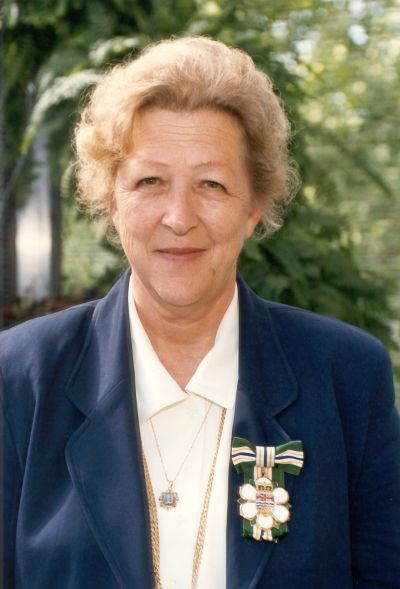
- Year: 1993
- City: Sooke
- Region: Vancouver Island/Coast
- Category: Community Leadership
Barbara Pentland *
Composer Barbara Pentland gave Canadian culture a musical legacy of extraordinary depth and artistic wisdom.
Born in Winnipeg in 1912, she began to write music at the age of nine, in spite of opposition from her parents. She studied music in Paris, and at the Julliard Graduate School in New York.
Barbara Pentland moved to Toronto in 1942 and in the following year became an instructor at the Royal Conservatory of Music. Moving to British Columbia in 1949, she joined the music department at U.B.C., where she taught theory and composition until 1963, thus helping and encouraging many young musicians.
Her music is characterized by a distinctive blend of lyricism, sensitivity and economy of expression. It includes chamber works, ballet, opera and symphonies. Her recent and mature works express a rich and abiding fount of creative renewal. For these gifts of music, Barbara Pentland has received the Order of Canada.
With wit and good humour, high standards and unassailable principles, she remained an active and inspirational presence in Canada’s music community.
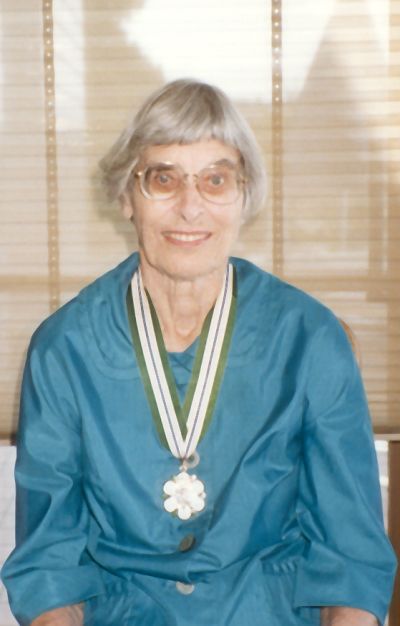
- Year: 1993
- City: Vancouver
- Region: Mainland/Southwest
- Category: Arts and Culture
Dr. Leonel Perra
Leo Perra, recently retired president of Selkirk College, is considered by his peers to be the outstanding provincial education leader during the past 20 years.
He established foundations and funds at Selkirk College to provide students with bursaries and scholarships and other types of financial support.
He was a visionary in distance education and international education programs; and when education budgets were being cut, he set up a multi-campus operation to bring education to rural parts of the region.
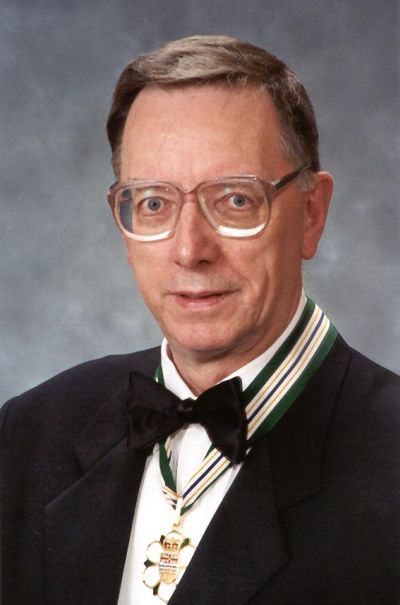
- Year: 2001
- City: Castlegar
- Region: Mainland/Southwest
- Category: Education
Dr. Howard E. Petch *
Dr. Howard Petch stepped down as President of the University of Victoria with the distinction of being the longest-serving President of a Canadian university at the time. This milestone is evidence of the respect he earned from his peers at the university as well as his ability as an administrator.
Under his leadership, the university embarked on an unparalleled program of development and scholarship which made UVIC one of Canada’s outstanding universities. Dr. Petch also played a key role in promoting access, providing leadership in science and engineering, and in fostering harmonious relationships among the Province’s universities.
Dr. Petch received his education in Ontario and in British Columbia, and was a Rutherford Memorial Fellow at Cambridge University. He enjoyed a distinguished academic career as a solid state physicist at McMaster University and the University of Waterloo and rose to President (pro tem) at the University of Waterloo before coming to Victoria in 1975.
Dr. Petch’s list of honours includes membership as a Fellow in the Royal Society of Canada, the Centennial Medal, 1967, and honorary doctorates from the universities of Waterloo and McMaster. He is a member of a host of national science committees and other university related bodies and he served on a number of Task Forces for governments, federal and provincial.
His interests were not limited to academe but included membership on a number of civic bodies including the British Columbia Arts Board, the Arts, Science and Technology Centre and as honorary President, the Post Polio Awareness and Support Society.
An ardent birdwatcher, Dr. Petch no doubt had a keen eye for the Martlet even after his departure from UVIC.
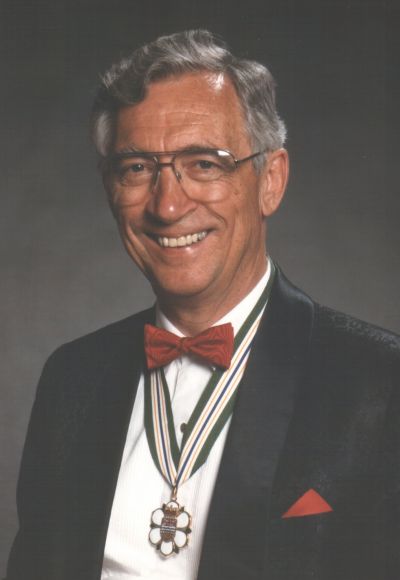
- Year: 1990
- City: Victoria
- Region: Vancouver Island/Coast
- Category: Education
Leslie Raymond Peterson *
Few British Columbians can claim the breadth of distinguished service to this Province and its people as could Leslie Peterson.
Educated at McGill and London University Mr. Peterson was called to the Bar in British Columbia in 1949 and commenced the practice of law in Vancouver.
In 1956, he was first elected to the Legislative Assembly and served with great vigor for 16 consecutive years in the Cabinet of W.A.C. Bennett, first as Minister of Education, then as Minister of Labour and for four years, as Attorney General.
During his term as education minister, the Province experienced perhaps its most dramatic extension of educational opportunities. Public universities increased from one to three; the community college system was established and BCIT was founded. As Attorney-General the Provincial Court system, as we know it, was established; the Judicial Council was created, as was the program to compensate the victims of crime.
Leslie Peterson is proof that there is life after the legislature.
In 1978 he first became a member of the Board of Governors of UBC, a position which he held until 1993, and its Chairman during the years 1979 to 1983. He was elected the University’s Chancellor in 1987, staying in office until 1993.
The range of his service to community organizations is too lengthy to recite but included the Canadian Child Health Association, the B.C. Historical Association, the John Howard Society and the Vancouver Aquarium. Through outstanding service with the Gizeh Temple and the Shrine of North American he was instrumental in raising funds to build a burn unit at the Children’s Hospital.
He holds an honorary Doctor of Laws from Simon Fraser University and an honorary Doctor of Education from Notre Dame University of Nelson and is Knight Commander of the Order of St. Lazarus.
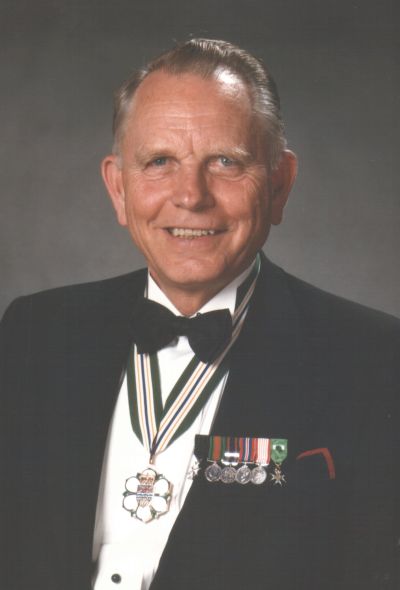
- Year: 1990
- City: West Vancouver
- Region: Mainland/Southwest
- Category: Education
Professor Andrew Petter
Andrew Petter has always viewed the future not as a gift but as an opportunity. Over a lifetime of service to the province, his visionary leadership has had a transformative impact on B.C. in public policy, legal education, university engagement and community betterment.
As a provincial cabinet minister, Petter led efforts to end legal discrimination against same-sex couples, establish the BC Treaty Commission, develop a mandate for the Nisga’a treaty negotiations, and create B.C.’s first Forest Practices Code. These initiatives enhanced human rights, advanced reconciliation, and positioned B.C. as a leader in environmental protection.
As dean of law at the University of Victoria, Petter established UVIC Law as a trailblazer in Indigenous legal education with enriched programming and ground-breaking initiatives like the Akitsiraq Law School that extended the reach of legal education to Indigenous peoples in the high Arctic.
As president and vice-chancellor of Simon Fraser University, Petter oversaw the development and implementation of a strategic vision that established SFU as Canada’s “engaged university.” Under his leadership, SFU expanded co-operative education and community-based learning, developed an innovative strategy to support sustainable growth and social infrastructure, and became a catalyst for community dialogue and development. In addition to being named Canada’s top comprehensive university by Maclean’s Magazine for nine of his 10 years, in 2020 SFU was ranked first in the world by Times Higher Education for its impact on sustainable cities and communities.
Finally, as MLA and minister responsible for the Provincial Capital Commission, Petter made enormous contributions to enhancing the quality of life of the Capital Region. Everyone who uses the Galloping Goose and Lochside trails, visits the restored St. Ann’s Academy, hikes Gowlland-Tod Provincial Park, or draws water from the enlarged Sooke Water Supply Area owes Petter a huge debt of gratitude for his vision and tenacity in seeing these and other community projects to completion.
In everything he has done, Andrew has been guided by an abiding faith in the power of public institutions to achieve transformative change. His contribution to B.C.’s economic and civic life has been recognized nationally and locally. His many honours range from Public Policy Forum’s Peter Lougheed Award for exceptional leadership in public policy to honorary citizenship in the City of Victoria. In 2019, he was inducted into the Order of Canada in recognition of his contributions to public policy and his leadership in advancing university-community engagement and higher education throughout the country.
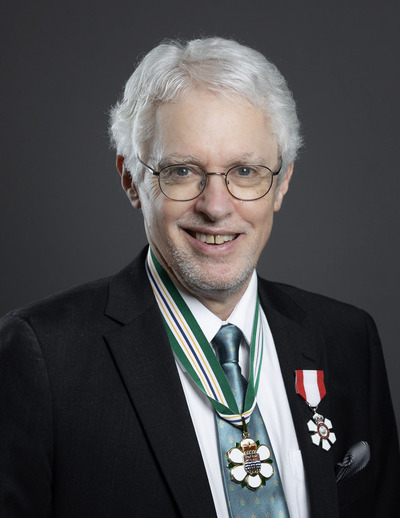
- Year: 2021
- City: Victoria
- Region: Vancouver Island/Coast
- Category: Education
Susannah Pierce
Susannah Pierce, president and country chair of Shell Canada until this year, is a trailblazing leader whose 30-year career has redefined the role of business in society.
A champion of environmental, social and governance integration, she has led transformative initiatives across Canada and globally, fostering collaboration among governments, Indigenous communities, NGOs and industry. She played a key role in LNG Canada, Canada’s largest private sector investment, prioritizing reconciliation with First Nations.
At Shell, she advanced a greener future through renewable energy, carbon capture and nature-based solutions. Beyond business, Susannah mentors young female immigrants, supports Indigenous youth through Indspire and founded the Human Trafficking Prevention Network of BC to bring corporate B.C. and organizations committed to combatting human trafficking in the province. She also works with the Native Women’s Association of Canada and the BC Network of Child and Youth Advocacy Centres.
A sought-after global speaker, Susannah uses her platform to inspire systemic change. Her work continues to shape a more inclusive, sustainable and socially responsible future.
Sophie Mae Pierre
For more than 20 years, Sophie Pierre has been the leader of the Ktunaxa Nation and a dedicated director of First Nations developments throughout B.C. and Canada.
Born in Cranbrook, she obtained a business administration diploma from Camosun College. As chief of the St. Mary’s Indian Band of the Ktunaxa Nation for the past 12 years, Sophie Pierre has demonstrated a deep and inspiring respect for the human being, translated into action on an impressive list of organizations.
Her efforts and skills, highly effective in political and business arenas, extend to other areas essential to strong community life; sports, recreation, youth, education, women’s advocacy, family mediation, and support for the elderly.
Sophie Pierre is currently co-chair of the First Nations Summit. She is a board member for Canada World Youth and for the Suzuki Institute, and is the chair of the Ktunaxa Independent School System.
Past boards she has served on include the Canadian Heritage Rivers Advisory Committee, and the UNESCO-sponsored “Decade for Culture” project. She was chair of the 1986 B.C. Summer Games cultural and special events committee, and the B.C. representative in the Canadian Consultive Council on Multiculturalism.
Sophie Pierre’s actions are recognized by her colleagues and others as resulting in a much improved quality of life and widened horizons for the Ktunaxa Nation and Kinbasket People and indeed, for First Nations throughout Canada.
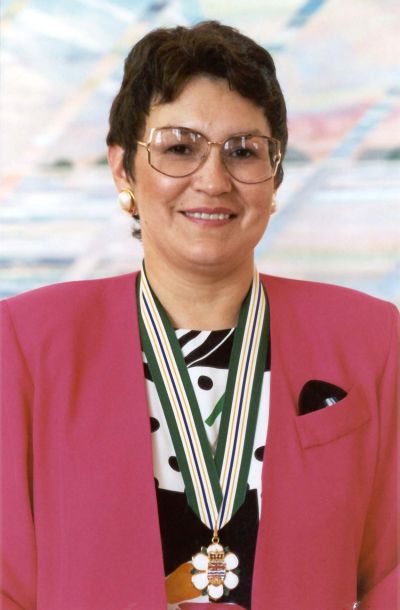
- Year: 1994
- City: Cranbrook
- Region: Kootenay
- Category: Community Leadership
Dr. Martha C. Piper
Dr. Martha Piper is the former president and vice-chancellor of the University of British Columbia, Greater Vancouver’s largest employer and an engine of learning and economic growth for British Columbians. Her contributions at UBC have played a major role in positioning our province to lead and benefit from the knowledge economy.
Stimulating research across Canada, Dr. Piper drew attention to how quality research can promote economic and social development. She was a central force in developing the Canadian Foundation for Innovation and the Canada Research Chairs at UBC.
Dr. Piper has consistently emphasized a focus on students and their involvement at all levels, and she is recognized for her stewardship of public and private funds, including tens of millions in donations to the university each year.
Dr. Piper provided leadership in building stronger links between the university and the community, fostering innovative public-private partnerships, including the development of a new community of 14,000 people on UBC’s 1,000 acres. She promotes excellent relations with the business community by participating on Board of Trade panels, the Business Council of British Columbia, and the B.C. Progress Board.
Dr. Piper contributes directly to the larger community as a United Way chair, and participates in many international organizations, such as the board of the National University of Singapore.
As an innovator in university governance, Dr. Piper has substantially and creatively reorganized UBC, bringing together effective financial management, external relations, and academic excellence for the benefit of all British Columbians.
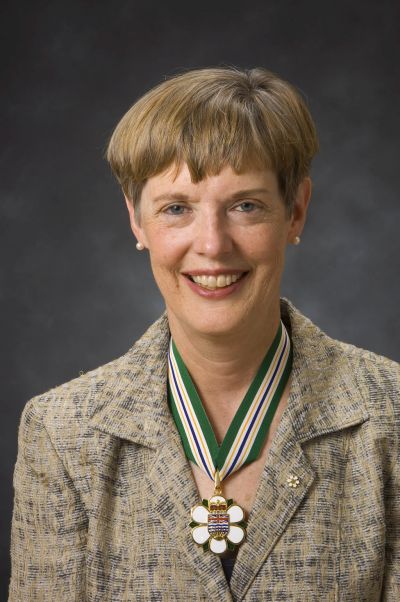
- Year: 2005
- City: Vancouver
- Region: Mainland/Southwest
- Category: Education
Geoff Plant
Geoff Plant has been named one of the most influential lawyers in Canada and is a social crusader with expansive influence over social change and public policy.
His record in public service and his contributions to non-profit organizations exemplify his selfless dedication to work for the benefit of others and for a goal of greater public good. In every area he touched – First Nations relations, higher education, legal reform, challenges around homelessness and urban poverty – he reframed society’s understanding of the issue and raised new solutions. In particular, he worked to change relations with First Nations and government, and guided the strategy that led to a series of successful modern treaties.
There are countless examples of large and small projects that have been achieved because of his influence. Most recently he has been the champion for the redevelopment of St. Paul’s Hospital as an integrated health campus that will be the catalyst for the future of health care in B.C.
Long before his public life, he was credited with bringing a much-needed seniors’ facility to the site of Gilmore Park United Church. While on the board of Covenant House, Plant is credited with helping to recruit other high-profile board members and playing a vital role in the growth of its youth service programs.
When serving as Vancouver’s civil city commissioner, he was one of the main architects of the Collaboration for Change, which brought together a broad range of Vancouver’s institutional and community stakeholders committed to addressing the urgent situation facing some of B.C.’s most vulnerable citizens: those with mental-health and addiction challenges who are also homeless or living in acutely substandard conditions. As a founding member of the Streettohome Foundation, he helped to develop mechanisms to engage the broader community and private-sector philanthropists in supporting initiatives to address homelessness. Plant is described as a man with a powerful intellect, driving passion and large conscience, who constantly thinks about the impact of his actions on others.
He devotes an enormous amount of time to not-for-profit organizations and his numerous appointments to boards speak to the recognition he has earned across many B.C. sectors. He has been board chair of Providence Health Care, the Land Title and Survey Authority of B.C., Dalai Lama Centre for Peace and Education, and Canada West Foundation. He is a former vice-chair of the Covenant House Vancouver board and, from 2015 to 2021, he served as chancellor of Emily Carr University of Art & Design.
Between 2001 and 2005, Plant served as the attorney general and minister responsible for treaty negotiations. In addition to negotiating the historic new relationship, he oversaw a provincial referendum on treaty negotiations, implemented an economic development program for First Nations, and led negotiations that resulted in several agreements in the B.C. treaty process.
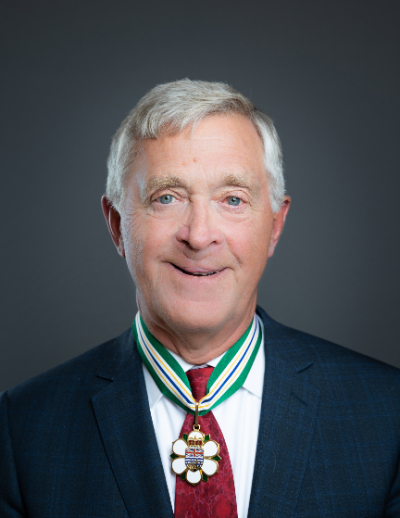
Year: 2022
City: Vancouver
Region: Mainland/Southwest
Category: Public Service
David R. Podmore
David Podmore has spent 35 years in the real estate and construction industry in British Columbia. At present he is Chairman and Chief Executive Officer of Concert Properties Ltd., which has grown to hold assets of over $2 billion. The corporation, which he co-founded with Jack Poole, has shareholders’ equity of $1 billion and is owned by 19 union and pension funds representing 200,000 British Columbians.
Mr. Podmore served as Chair of the BC Pavilion Corporation between 2007 and 2012. He was asked to assume responsibility to ensure completion of the Vancouver Convention Centre Expansion in preparation for the 2010 Winter Olympic and Paralympic Games, and subsequently refurbishment of BC Place Stadium.
In the 1980s, as Vice-President of Planning, Design and Engineering for BC Place Ltd., David Podmore developed the comprehensive master plan for the Expo lands in Vancouver for Expo 86. He is a past president of the Greater Vancouver Home Builders’ Association and of the Urban Development Institute. He is Chair of the BC Children’s Hospital Foundation.
He also chaired the 2003 “Vote Yes” campaign urging Vancouver voters to support the Vancouver Olympic bid.
In 2002 Mr. Podmore was the first recipient of the Real Estate Institute of BC’s Award of Excellence which honours a member for outstanding leadership and contribution to the industry and to the community. He is a recipient of the Queen Elizabeth II Diamond Jubilee Medal.
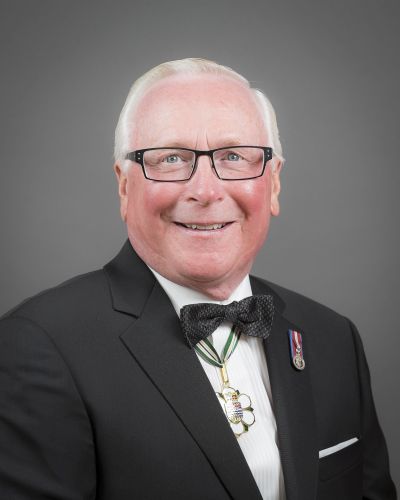
- Year: 2014
- City: Vancouver
- Region: Mainland/Southwest
- Category: Business
Honourable Steven L. Point (Xwĕ lī qwĕl tĕl)
The Honourable Steven L. Point (Xwĕ lī qwĕl tĕl) was sworn-in as British Columbia’s 28th Lieutenant Governor on October 1, 2007.
In 2005, he was appointed Chief Commissioner of the British Columbia Treaty Commission. He has also served as an elected Chief of Skowkale First Nation for 15 years, as the tribal chair of the Stó:lō Nation, and honoured as Grand Chief by the Chiefs of Stó:lō Tribal Council.
Mr. Point was appointed a provincial court judge in February 1999, most recently sitting in Provincial Courtin Abbotsford. He received an Honorary Doctorate of Law degree from the University College of the Fraser Valley in June 2000 and is a recipient of a National Aboriginal Achievement Award, also in 2000. He received a Bachelor of Laws degree from the University of British Columbia in 1985 and was called to the Bar in British Columbia in 1986.
Born in Chilliwack, Steven and his wife Gwendolyn have four children and 11 grandchildren.
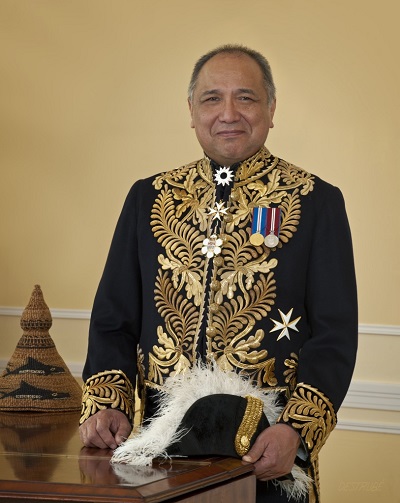
- Year: 2007
- City: Chilliwack
- Region: Mainland/Southwest
- Category: Lieutenant Governor
John (Jack) W. Poole *
Jack Poole founded Daon Development Corp. in B.C., which became the second-largest real estate investment and development company in North America. Poole was chairman of the board for a second company he founded, Concert Properties. He was also partner in and/or owner of 17 private businesses in Canada and the United States. Poole helped bring the Molson Indy race to Vancouver and was chairman and CEO of the Vancouver 2010 Olympic Bid Corp. He is a charter member of the Wall of Fame at the University of Saskatchewan and has been profiled in Maclean’s, Canadian Business, the Wall Street Journal and major newspapers in Canada and the United States.
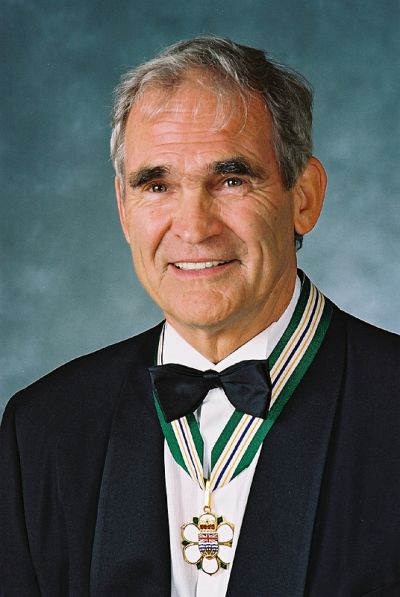
- Year: 2003
- City: Vancouver
- Region: Mainland/Southwest
- Category: Business
Tracy Porteous
Tracy Porteous’s commitment to helping and supporting victims began when she started volunteering at the Victoria Women’s Sexual Assault Centre at 19 years old. Her experience of supporting survivors was so meaningful that she decided to dedicate herself to the cause for the rest of her life and that has made her a visionary and pioneer in her field.
During her time as project manager with the Victoria Sexual Assault Centre, with the help of two other women, she wrote a booklet aimed at teenage girls called “Let’s Talk About Sexual Assault”. This booklet was the first of its kind in Canada and won the national award for crime prevention. It became a Canadian bestseller and was widely used in schools, doctors’ offices, police departments and sexual assault centres.
When Porteous became the executive director of the Victoria Sexual Assault Centre she realized that the sexual assault and victim service centres in B.C. did not have a coordinated voice at the provincial level. With that knowledge, she worked to create a provincial body that exists today as the Ending Violence Association of British Columbia (EVA BC) which today has over 300 programs and initiatives.
Her determination as executive director led EVA BC through a game-changing initiative that they called “Be More Than a Bystander.” This opened up the conversation to what was historically viewed as only a women’s issue at a time when there was a dramatic increase in domestic violence homicides in B.C. By asking the B.C. Lions football club to become spokesmen, this successful initiative encouraged men to talk to other men about sexual assault and intimate partner violence. For this groundbreaking campaign, Porteous was honoured with a lifetime achievement award from B.C.’s Child and Youth Representative Mary Ellen Turpel-LaFond. Porteous is also the co-chair of the Ending Violence Association of Canada, which helped the Canadian Football League develop its national violence against women policy, which coordinates the training of players, coaches and staff of every CFL team and assists the league on critical incidents that relate to gender-based violence.
In June of 2020 the University of British Columbia bestowed an Honorary Doctor of Laws degree to Tracy as they do each year for “distinguished individuals who are deemed worthy of recognition for their outstanding contributions to society.”
The recognition of her work extends beyond Canada. In 2012 Porteous attended the United Nation’s 57th commission on the status of women in New York as an official delegate from Canada and spoke at a global session about prevention of violence against women. Porteous’ commitment and leadership has brought her many other recognitions such as the Justice Canada Excellence in Victim Services Award (2018) and the Governor General of Canada’s medal, which she won three times. The most recent medal (2014) in recognition of the Persons Case for “exemplary contributions towards the equality of women in Canada.” Porteous was also a member of B.C.’s 2010 and 2016 Domestic Violence Death Review panels and has testified before parliamentary committees related to violence against women, law reform, and judicial training.
The work Porteous has done throughout her life has and will continue to help countless women across the province. There is no one more deserving of this award than her.
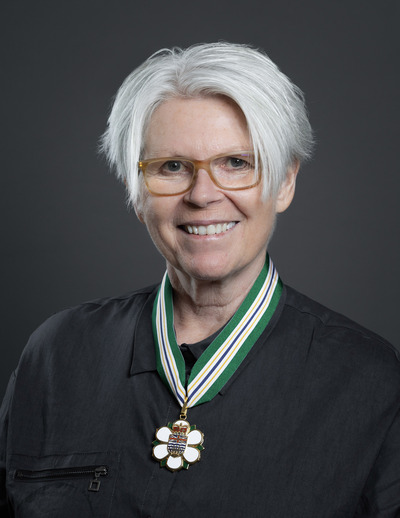
- Year: 2020
- City: Vancouver
- Region: Mainland/Southwest
- Category: Community Leadership
Derek Porter
Victoria’s Derek Porter is a natural athlete. He has participated in cross-country running, soccer, tennis, golf, skiing, squash – and rowing, the sport in which he has become most successful and best known.
While at the University of Victoria, earning his Bachelor of Science degree, he won a gold medal in the eight with cox and a silver in the four with cox at the 1987 Western Canada Games. Five years later he became a Gold Medallist at the Barcelona Olympics in the eight with cox.
After the Olympic Games, with many members of the eight crew retiring from competition, Mr. Porter decided to try the single sculls. In a new rowing event demanding a different set of skills and mindset, with a new coach and in his very first year of competition, he won the 1993 World Single Sculls Championship in Czechoslovakia, defeating the 1992 Olympic gold and silver medalists in the sport. He is the first Canadian to win the championship in 100 years.
He has consistently demonstrated the exceptional qualities of discipline, dedication and perseverance throughout his career. He is now a practicing Chiropractor in Victoria, British Columbia.
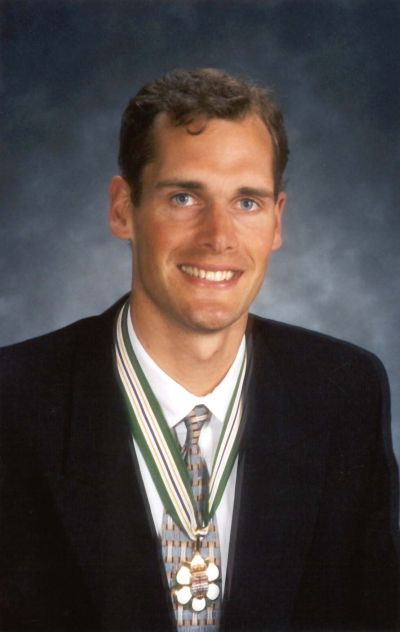
- Year: 1996
- City: Victoria
- Region: Vancouver Island/Coast
- Category: Sports and Recreation
Patricia Mathilda Proudfoot *
Patricia Proudfoot was a retired Justice of the B.C. Court of Appeal, who served with distinction as a judge on all levels of court in B.C. She was the first female judge appointed to the Criminal Division of the Provincial Court, the County Court of B.C., and the B.C. Supreme Court. Judge Proudfoot was appointed to the B.C. and Yukon Territory Court of Appeals, and sat on the first all-female panel of that court. She was also appointed Deputy Judge to the Supreme Court of the Northwest Territories.
Mrs. Proudfoot served her community in many capacities, including as commissioner to the Royal Commission into the Incarceration of Female Offenders, and a member of the Committee on Sexual Offences Against Children and Youth. She also served on the Canada Pension Appeal Board, and served on the Canadian Panel on Extraordinary Challenges for NAFTA.
She was an honorary director of Big Sisters of BC, demonstrating her belief in the important role of mentorship between women and young girls. Throughout her career, she served as a mentor for many women and men in the legal profession. The best evidence of her ability to lead by example has been the increasing numbers of women who have followed Judge Proudfoot onto the bench.
Mrs. Proudfoot made a profound contribution to the legal profession, to family law in British Columbia, to her community, and to those who have worked with her over the years.
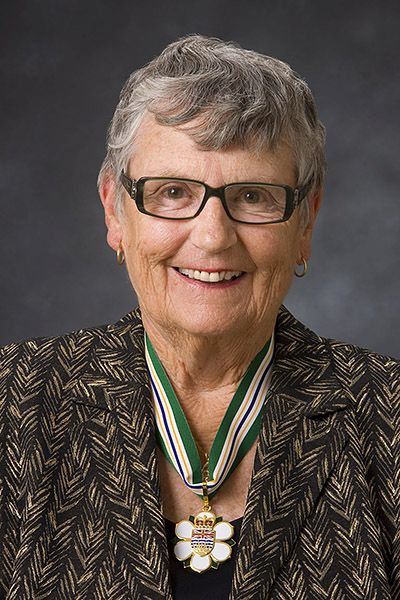
- Year: 2007
- City: Vancouver
- Region: Mainland/Southwest
- Category: Professions and other occupations
Ross C. Purse *
Ross Purse gave unselfish service to others in spite of difficult circumstances. As a prisoner of war for four years during World War II, his character and sense of duty made him stand out among his fellows, along with his energy, hard work and reliability.
When he returned to Canada after the war, with a visual impairment, he went to work for the Canadian National Institute for the Blind. In his years with the CNIB, he provided national leadership in the development and implementation of programs for the welfare of the blind and for the prevention of blindness.
His work on the Unmet Needs of Blind Canadians study in 1976 created a different understanding of the CNIB’s structure, mandate and service programs.
Internationally, Ross Purse was a member and past secretary of the American Association of Workers for the Blind, he served on the executive of the World Council for the Welfare of the Blind, as chairman of its North America-Oceania Region.
He served on the Executive Boards of the Royal Commonwealth Society for the Blind, the International Agency for the Prevention of Blindness, and was founding chairman of the Canadian Coordinating Committee for Blindness Prevention, to mention a few.
After his retirement, Ross Purse continued as an active member of the Sir Arthur Pearson Association of War Blinded and Rotary International.
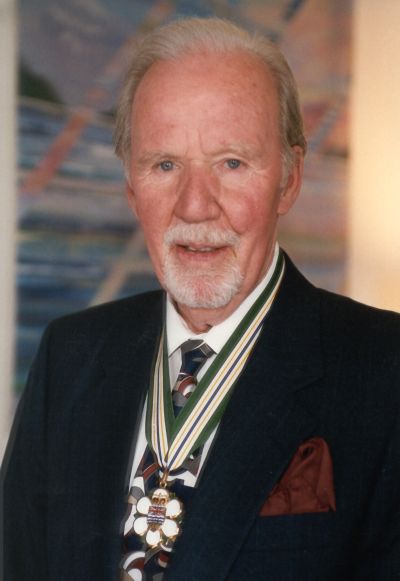
- Year: 1993
- City: Parksville
- Region: Vancouver Island/Coast
- Category: Community Leadership
Q
John Brian Patrick Quinn *
Pat Quinn left a large imprint on our province and on our country through his accomplishments in amateur and professional hockey. He played as a junior in the 1960s, demonstrated leadership in coaching and management in the National Hockey League, and continued on the world stage leading Canadian teams to gold medal victory at Olympic and other international tournaments.
Recognized and respected world-wide for his accomplishments as head coach of our national men’s teams, Mr. Quinn is the only person to have coached and managed gold medal winning teams on four different occasions. He spent 11 years in top hockey positions with the Vancouver Canucks, from head coach to general manager, to president. He won the hearts of BC hockey fans by leading the Canucks to a seventh and deciding game in the Stanley Cup playoffs in 1994.
Twice honoured as the NHL’s coach of the year, Pat Quinn always made time to share his hockey knowledge with youngsters at summer camps across the province and country.
As part owner of the Canadian Major Hockey League Vancouver Giants, he continued to work with aspiring NHL prospects. He was also an active member of the Canucks Alumni, which makes major financial contributions to several community initiatives through the British Columbia Hockey Benevolent Association.
A proud British Columbian, Pat Quinn made British Columbia a better place.
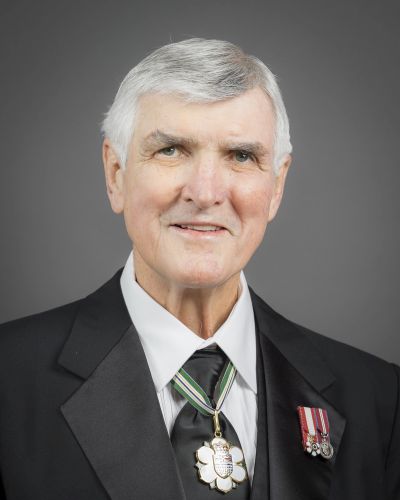
- Year: 2014
- City: West Vancouver
- Region: Mainland/Southwest
- Category: Sports and Recreation
R
Barbara Rae *
Barbara Rae combined success as a businessperson with a keen sense of commitment to British Columbia and its people. She received a Master of Business from Simon Fraser University.
As former president and chief executive officer of Office Associates Ltd., she was a role model, not simply of success but also of personal warmth, generosity and character. And she created countless employment opportunities, especially for women who need to blend family responsibilities with work outside the home.
Barbara Rae served on the boards of B.C. Tel, Microtel Ltd., MPR Teltech Ltd., Seaboard Life Insurance Company, Grosvenor International Holdings Limited and the Royal Trust Western Advisory Board.
She was also deeply involved in British Columbia’s social and educational institutions – a former chancellor of Simon Fraser University and as a former member of the provincial Judicial Appointments Committee and the Premier’s Economic Advisory Council.
Barbara Rae co-chaired the B.C. Council of Christians and Jews and was on the Pacific Region board of directors of the Salvation Army. Over the years, she chaired major fund-raising campaigns such as the Lower Mainland United Way and the Salvation Army’s Red Shield. She was president of Junior Achievement, vice-chair of the B.C. Institute of Technology’s Board of Governors and a director of the Vancouver Board of Trade. In 1989, her work was recognized with a Canadian Volunteer Award.
Among her other recognition’s were Entrepreneur of the Year (1987), West Vancouver Achievers Award (1987), Vancouver YWCA’s Businesswoman of the Year (1986), and Simon Fraser University’s Outstanding Alumnae Award (1985).
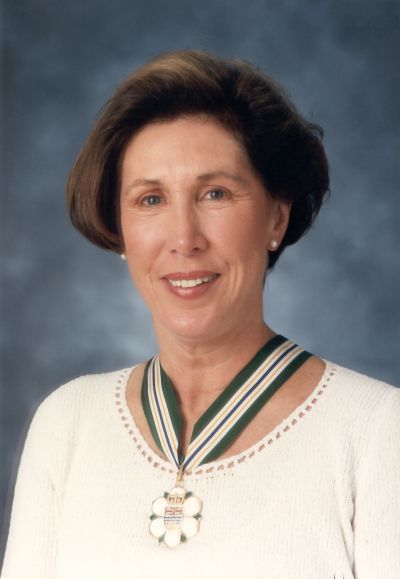
- Year: 1991
- City: West Vancouver
- Region: Mainland/Southwest
- Category: Business
J. Pauline Rafferty
Pauline Rafferty became recognized as one of Canada’s leading executives in the cultural sector as she transformed the Royal BC Museum into one of the premier museums of its kind around the globe.
As chief executive officer, Pauline revitalized the museum, widened its accessibility and enhanced its reputation as she brought world-class exhibits and a business focus to the institution. Her work helped strengthen Victoria’s tourism sector and economy.
Pauline devoted her adult life to ensuring that British Columbians could enjoy top-quality cultural experiences. Early in her career in British Columbia, she helped develop conservation and heritage policies and tourism marketing programs. For many years, Pauline has been a model for women working in senior public service jobs, helping many advance their careers. She has also served as a member on many boards including Simon Fraser University and the National Capital Commission.
More recently, she serves as Interim Chair of the Canadian Museum of Human Rights in Winnipeg where she brings her specialized knowledge, management know-how and excellent interpersonal skills to the task of building a new institution for the country.
Pauline has received an honorary degree from the University of Victoria and the Queen Elizabeth II Diamond Jubilee Medal.
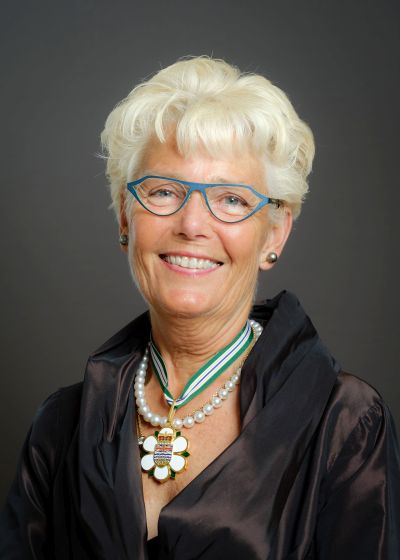
- Year: 2019
- City: Victoria
- Region: Vancouver Island/Coast
- Category: Arts and Culture
Dr. Kimit Rai
Dr. Kimit Rai, an internationally recognized plastic surgeon, founded Operation Rainbow Canada in 1998, a non-profit medical humanitarian organization that provides free cleft lip and palate corrective surgery to impoverished children and young adults in developing countries.
His passion about the value we bring to the future of children has so far transformed the lives of more than 2,000 children in places such as Cambodia, India, Lebanon, Mexico and the Philippines.
Without any paid mission staff, Dr. Rai serves as both teacher and mentor, providing education and hands-on training to Canadian medical residents who volunteer their time on missions and to health care professionals in the host countries.
Operation Rainbow has trained Canadian plastic surgery residents, as well as anesthesia fellows and paediatric residents in BC Children’s Hospital.
In collaboration with the Canada Ukraine Foundation, Dr. Rai travelled to Ukraine in 2014 on a 10-day mission focused on post-traumatic and acute trauma surgeries for victims of demonstrations during civil unrest, as well as injured soldiers from Eastern Ukraine.
Born to refugee parents in Kuala Lumpur, Dr. Rai entered medical practice in a government general hospital, then further developed his skills during mandatory enlistment in the Malaysian army. After earning the rank of captain, he left his home and family to study plastic surgery by the University of BC.
As a plastic surgery resident on the burns and isolation ward at Vancouver General Hospital, he completed his training at the University of British Columbia and received his plastic surgery certification in 1975.
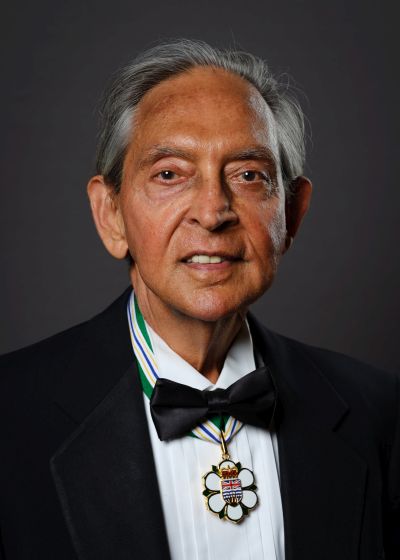
- Year: 2019
- City: Coquitlam
- Region: Mainland/Southwest
- Category: Volunteer Service
Imant K. Raminsh
Imant Raminsh has significantly enriched the cultural life of every B.C. community he has been part of, earning the highest civilian honors from both his native Latvia and his adopted country, Canada, for his lasting contributions as a classical composer, conductor, teacher, and mentor.
With a Bachelor of Music from the University of Toronto and further studies at the Mozarteum in Salzburg, Austria, UBC, and the University of Victoria, Imant has founded and conducted numerous musical organizations in B.C., including the forerunner of the Prince George Symphony, the Aura Chamber Choir, the Youth Symphony of the Okanagan, and the Nova Children’s Choir. His compositions have been performed on six continents in renowned venues such as Carnegie Hall, where he conducted multiple concerts.
Imant’s influence extends beyond his musical achievements; he has inspired countless young musicians as a violin teacher at the Vernon Community Music School since 1977 and served as a mentor for Okanagan Young Composers. His awards include the Order of Canada, the Order of the Three Stars from Latvia, the Latvian Grand Music Award, and multiple honors from the B.C. Arts Council and the Canadian National Choral Awards.
Additionally, Imant has worked as a B.C. Parks naturalist, teaching others to appreciate and protect the province’s natural beauty. His profound legacy in music and mentorship has made an indelible impact on B.C.’s cultural landscape.
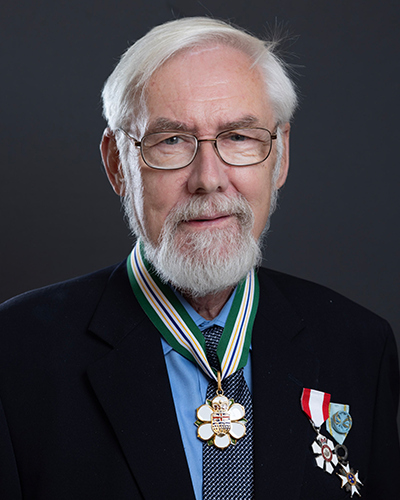
- Year: 2024
- City: Coldstream
- Region: Thompson/Okanagan
- Category: Arts and Culture
Dr. Peter Ransford *
An innovator in the field of emergency health services, Dr. Peter Ransford was largely responsible for British Columbia having one of the world’s most outstanding networks of emergency health services.
Dr. Ransford recommended, designed and implemented this system during the 1970s after becoming an expert in emergency health care by delivering it in England during the Second World War.
Having moved to British Columbia after the war to practice medicine, he was asked by the BC Government in 1973 to survey the status of ambulance and emergency services in the province. His report – which recommended dramatic changes – became the blueprint for BC’s modern emergency health services.
Dr. Ransford was asked to direct the introduction of these dramatic service improvements and he did so over succeeding years. He went on to work as Senior Medical Advisor for the Ministry of Health until his retirement in 1983.
In 2007, there were more than half a million calls for emergency ambulance service and more than 8,000 calls for air ambulance service in BC – one of North America’s busiest ambulance services.
Today, BC has a first class emergency health services system, largely due to Dr. Ransford’s vision and persistence.
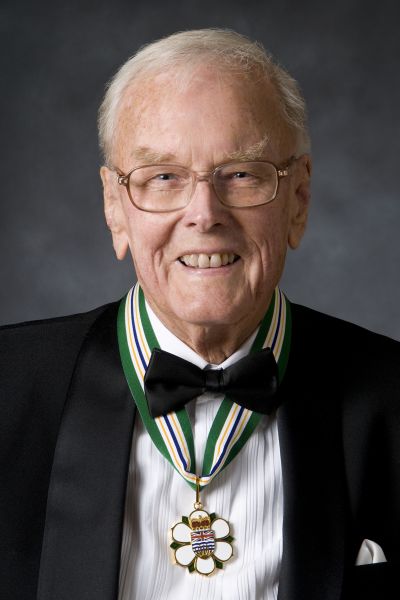
- Year: 2008
- City: Victoria
- Region: Vancouver Island/Coast
- Category: Professions and other occupations
Dr. Saida Rasul
Dr. Saida Rasul is a dentist and community volunteer focused on the improvement of the lives of the less fortunate in British Columbia and in many other countries.
During her tenure on the board of governors of SFU, Saida stewarded capital projects in excess of $200 million and championed the creation of the Centre for the Comparative Study of Muslim Cultures and Societies. With her husband, Firoz, Saida’s philanthropy includes gifts of nearly $12 million to the BC Cancer Agency, SFU, UBC, United Way and BC Children’s Hospital, among others.
Saida is a volunteer to the Aga Khan University. She has helped set up two preventive dental programs as part of the hospital systems in East Africa and in Pakistan and is working with volunteers to set up a diploma of dental hygiene program to train students who will go back and improve the oral health and general health of their rural communities.
In recognition of her sustained community contributions over three decades, she has received an Honorary Doctor of Laws from SFU, the Queen Elizabeth Diamond Jubilee Medal and recent recognition by the British Columbia and Canadian Dental Associations.
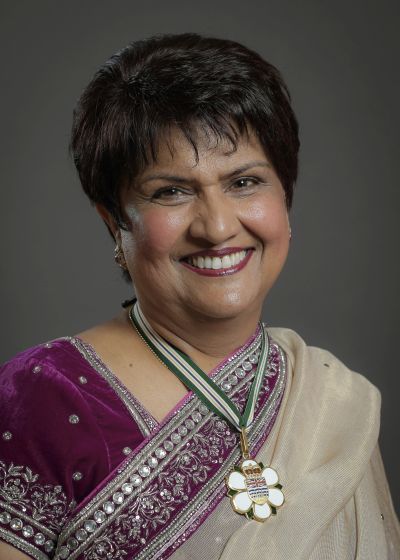
- Year: 2015
- City: Vancouver
- Region: Mainland/Southwest
- Category: Community Leadership
George C. Reifel
George Reifel is a third-generation conservationist who has provided volunteer leadership for more than four decades to a wide range of conservation organizations to secure and enhance the natural environments in North America, particularly in B.C., for the benefit of wildlife, fish, plants and people.
Reifel has served for 45 years as an active director of the B.C. Waterfowl Society, which has managed the George C. Reifel Migratory Bird Sanctuary in the Fraser Delta since 1963. This internationally significant wetland was created by his grandfather and was dedicated to Canada by his father.
The sanctuary is home to 300 species of birds and hosts 95,000 visitors annually, including thousands of school children discovering wildlife and wetlands. The very existence and continuation of these nature-education and interpretive programs is because of Reifel’s steadfast mentorship direction, and in many cases, his own financial contributions.
Reifel is a past director of the Nature Trust of B.C. and was directly responsible for securing several high-profile conservation projects, including the assembly of the five islands that became the catalyst for the creation of the South Arm Marshes Wildlife Management Area in the Fraser River Delta, the Hoodoos Ranch in the Kootenay and the riparian areas of the Englishman River on Vancouver Island.
As a past-president and the longest-serving national director in Ducks Unlimited Canada, Reifel has been directly engaged in the securement and enhancement of important wetlands in B.C. and across Canada, including the creation and implementation of the original Continental Conservation Plan, which continues to guide the delivery of conservation programs for migratory waterfowl in Canada, the U.S. and Mexico.
Reifel has negotiated several acquisitions of property and conservation covenants to protect the land in its natural state. He participated in the creation of the Institute for Wetland and Waterfowl Research, Ducks Unlimited Canada’s science arm to guide its decisions. Led by a team of world-class scientists, the institute conducts research and upholds the organization’s scientific integrity on the world stage.
As a director and director emeritus of the Pacific Salmon Foundation, Reifel served on its Community Salmon Program Committee to provide grants to community stewardship groups and individuals throughout B.C. and the Yukon to help protect, conserve and rebuild wild Pacific salmon populations. To date, grants of $25.7 million to more than 3,000 projects have been matched by $185 million or a ratio of approximately 7:1 with funds from other conservation partners.
Reifel is a life member and served as an active director of the historic Tyee Club of B.C. for 18 years. He is also a life member of the BC Wildlife Federation.
Combining the strength of his conservation ethic with his business experience and skills, Reifel has dedicated his life in service to British Columbia’s natural heritage and citizens. A successful businessman in his day job, he has earned the reputation of having honourable business conduct, as well as moral and ethical standards that are beyond reproach, and has been a mentor to young professionals in real estate and conservation. He established and chaired the B.C. Corporate Campaign for the Canadian Cancer Society and served as the chair of the real estate and finance division of the United Way.
Reifel has been awarded the Queen’s Golden and Diamond Jubilee Medals for long-time membership and vigorous leadership in numerous conservation organizations, having considerable effect on the B.C. and Canadian landscape. He was honoured with the B.C. Medal of Good Citizenship in 2020.
In April 2023, Reifel was presented with the Ted Barsby Conservation Award, the British Columbia Wildlife Federation’s most prestigious honour for outstanding contributions to conservation in B.C. over many years.
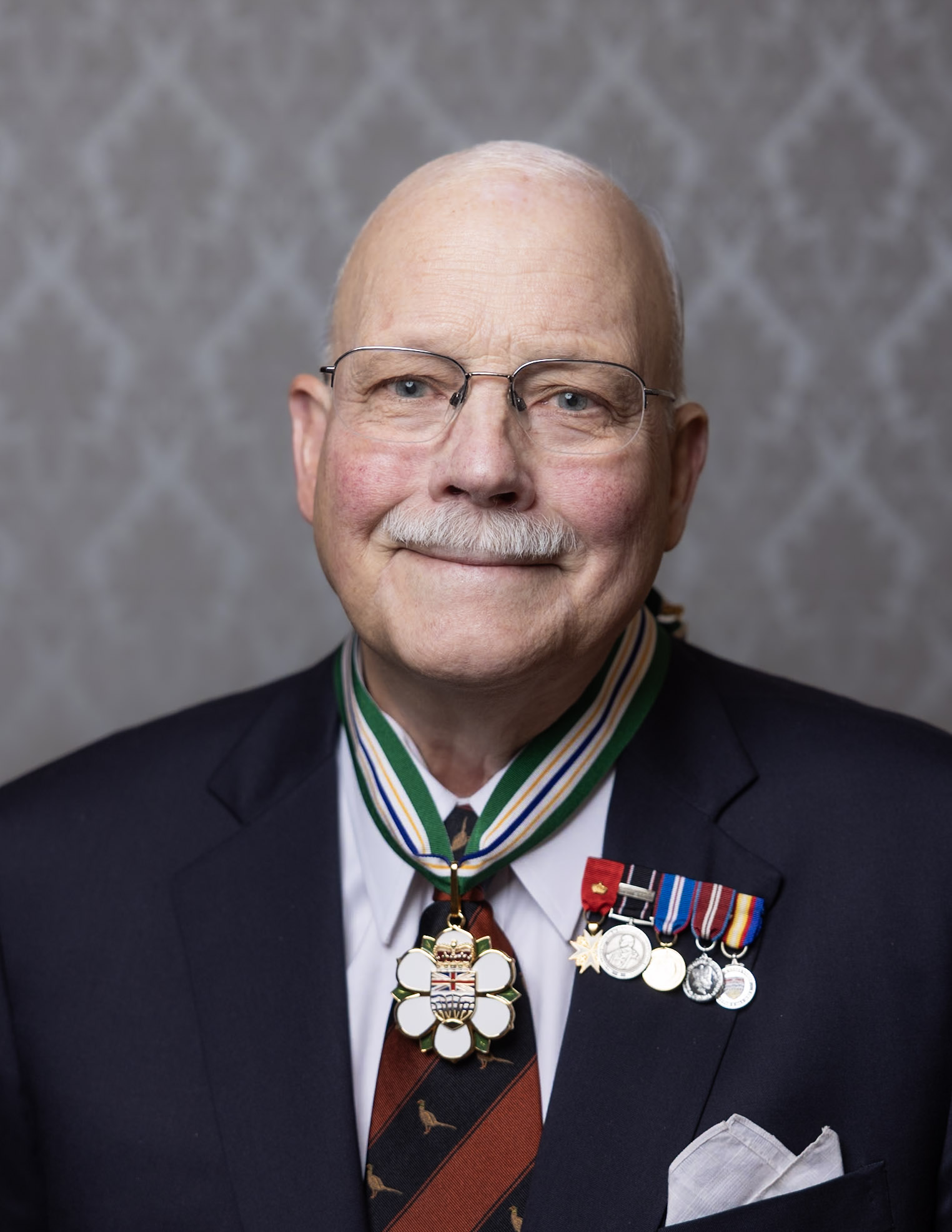
- Year: 2023
- City: Vancouver
- Region: Mainland/Southwest
- Category: Environmental/Conservation
William (Bill) Reid *
Bill Reid ranks among Canada’s finest artists, past or present. His works – finely crafted gold, platinum, silver, argillite, bronze, cedar, or ink on paper – are results of a diverse and magnificent talent, treasured by devoted collectors world-wide.
Bill Reid was born in Victoria, the son of a German-Scots-American father and a Haida mother. For 16 years he worked in broadcast journalism, including 10 years with CBC radio.
But the call to create was too strong to ignore. In 1951 he returned to the West Coast from Toronto, embarking on a creative journey lined with stunning jewelry, silkscreen prints, imposing totem poles, and massive monumental sculptures like “Killerwhale”, which greets Vancouver Aquarium visitors, “The Raven and the First Men”, at the UBC Museum of Anthropology and the “Spirit of Haida Gwaii” gracing the Canadian Embassy in Washington.
Bill Reid is often compared to The Raven of Haida legend, a mythical creature whose actions brought about significant changes to the world around him.
Today his art is in public and private collections around the world. Five Canadian universities have conferred honorary doctoral degrees on him and in 1986 he received the Bronfman Award for Excellence in the Crafts, and became an Officer of the Order of Canada.
In literally re-creating the art of the past, Bill Reid shared with us the complex forms of his ancestors in a style proven truly outstanding in the art world.
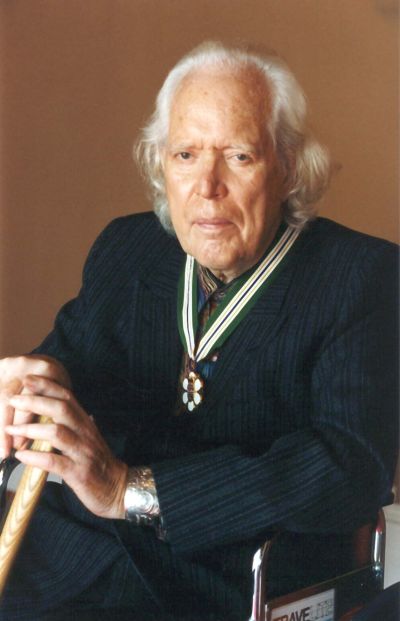
- Year: 1994
- City: Vancouver
- Region: Mainland/Southwest
- Category: Arts and Culture
Bob Rennie
Bob Rennie is a successful real estate marketer and one of Canada’s most astute, ambitious and passionate art collectors.
The undisputed leader of British Columbia’s real estate community, Mr. Rennie has led the industry with innovations on marketing, project design and advocacy for quality construction. He has showcased our way of life to people from around the world, contributing significantly to British Columbia’s appeal to immigrants.
Bob Rennie has made donations to a wide array of public services and facilities in BC and Canada, including hospitals and other institutions, plus artists and good Samaritans. Mr. Rennie is best known for his expertise and contributions in the world of contemporary art. The Rennie Collection, started in 1976, was established in 2009 at Wing Sang, a privately funded art museum open to the public without charge. He funds the Rennie Collection Speaker Series at Emily Carr University and the Distinguished Visiting Artist Lecture Series at the University of British Columbia. Bob received an Honourary doctorate of letters in 2006 from Emily Carr University.
Bob Rennie is chair of Tate Modern’s North American acquisitions committee and a member of Tate Museum’s international council. He sits on the board of governors of Emily Carr University and the Dean’s Advisory Board to the Faculty of Arts at UBC.
Whether bringing local art to an international audience or sharing world-renowned art with the local community, Mr. Rennie has demonstrated exceptional dedication to strengthening and enhancing arts and culture in BC.
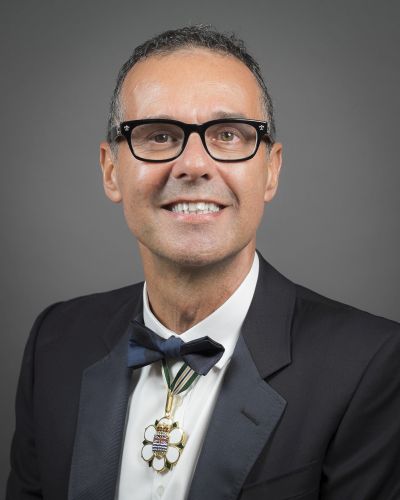
- Year: 2014
- City: Vancouver
- Region: Mainland/Southwest
- Category: Arts and Culture
Ryan Reynolds
Ryan Reynolds is a homegrown heavyweight. The Vancouver-born Hollywood star has an impressive television and filmography resume, appearing in a variety of genres.
He is an established A-lister who has earned heaps of praise and multiple accolades, including the 2022 American Cinematheque Award, the 2022 People’s Choice Icon award, a 2019 Grammy nomination, as well as the Governor General’s Performing Arts Award in 2021. For his achievements, Reynolds was named to Canada’s Walk of Fame in 2011 and formally inducted in 2014. He also has a star on the Hollywood Walk of Fame.
While Reynolds’ acting talent is impressive, his philanthropic efforts and support for various charitable causes off-screen are even more awe-inspiring. He is a leading man who leads from the heart.
Reynolds, and his Marvel character Deadpool, is a role model for many. He has partnered with Make-A-Wish Foundation and Children’s Wish Foundation to make the dreams of kids battling critical illnesses come true. He uses his fictional hero and humour to raise awareness and tackle the touchy subjects of breast and testicular self-examinations.
Reynolds appeared in Lead From Behind’s launch video, which filmed and broadcast his colonoscopy in an effort to inspire others to get checked for colon cancer. He brings out his “aesthetically challenged” holiday sweater once a year to benefit Sick Kids Foundation, which raises funds for the Hospital for Sick Children in Toronto.
Reynolds is making a measurable impact through his Group Effort Initiative (GEI), as well as Creative Ladder. GEI is a diversity program that helps Indigenous, Black, people of colour (IBPOC) and those from other marginalized communities chase their dreams by providing paid, on-set training opportunities. They can then parlay their experience into other opportunities within the entertainment industry and ensure their voices will make a lasting effect on the industry. Creative Ladder helps students from all backgrounds learn about creative careers and offers leadership training for those beginning their journeys.
Reynolds’ kindness and selflessness have benefited countless people here in B.C., Canada and beyond. He is a huge supporter of Covenant House Vancouver, an organization that provides shelter and support to homeless and at-risk youth, the Michael J Fox Foundation for Parkinson’s Research and the Terry Fox Foundation.
Reynolds has donated to Water First Education and Training Inc., which provides resources for young Indigenous adults to become water-treatment operators and environmental water science technicians. They, in turn, will help ensure sustainable access to safe, clean water in Indigenous communities. He has also made a difference with his support of Reconciliation Canada and to the Influence Mentoring Society, a program that helps Indigenous students in post-secondary institutions. He also supports various causes, including Food Banks Canada and the Greater Vancouver Food Bank.
Reynolds, who narrated the Great Bear Rainforest Imax film, amplified the message of preservation and helped the conservation charity Pacific Wild surpass its fundraising goal. Reynolds is there in times of need. He donated to the 2021 disaster relief efforts in Abbotsford and other flood-affected communities and urged his fans to do the same. He did the same following a massive earthquake in Haiti. Following the full-scale invasion by Russia, Reynolds opened his wallet to support displaced families from Ukraine.
Countless other organizations have benefited from his big heart. Rightfully, in 2023, the Academy of Canadian Cinema and Television gave Reynolds its humanitarian award “for his dedication to philanthropy throughout his career with several generous donations to various charities.”
@VanCityReynolds is a wonderful ambassador for Vancouver, for the province and for Canada.
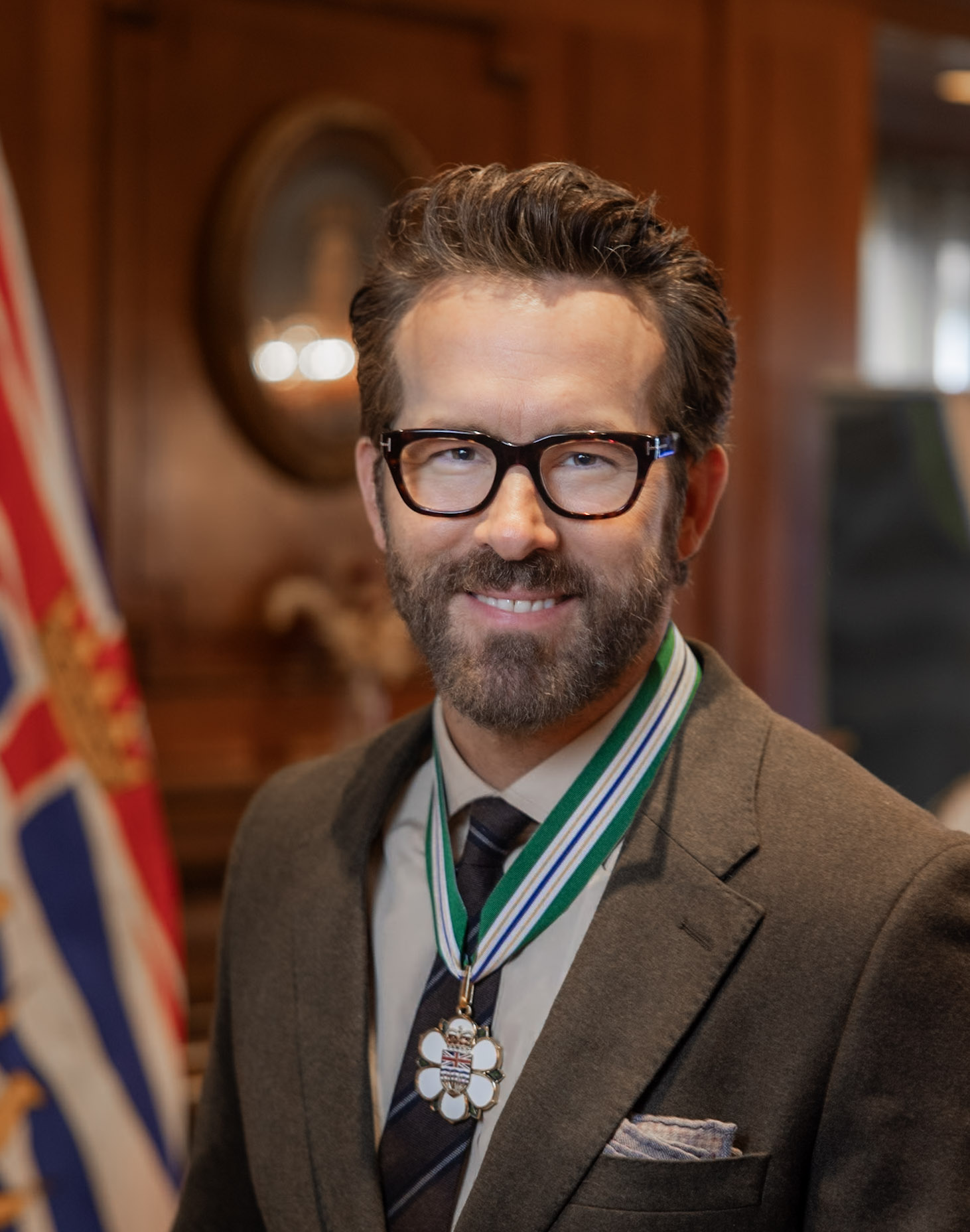
- Year: 2023
- City: New York
- Region: Out of Province
- Category: Arts and Culture
Dallas M. Richards *
Dal Richards was a musician and bandleader for over 65 years. His band played at the Hotel Vancouver’s Panorama Roof for over 25 years, the longest running dance band engagement in Canadian history, and was featured in over 2,000 coast-to-coast CBC Radio broadcasts. Richards contributed to and enhanced the careers of six generations of British Columbia’s finest musicians. Richards received Tourism Vancouver’s Man of the Year award in 1985 and is a member of the B.C. Entertainment Hall of Fame. In 1993, he was given the Variety Club of B.C.’s highest honour, the Heart Award, and Variety Club International’s Presidential Citation Award. In 1995, he was appointed to the Order of Canada.
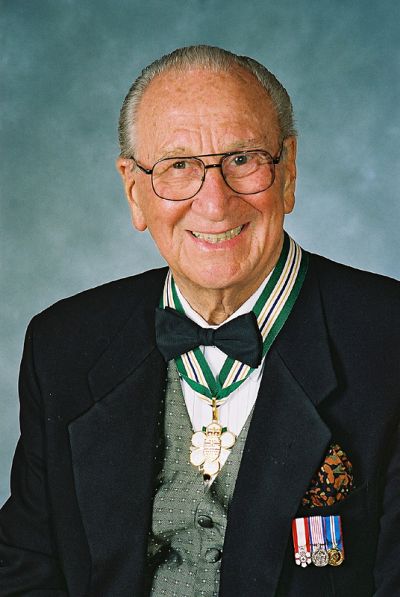
- Year: 2003
- City: Vancouver
- Region: Mainland/Southwest
- Category: Arts and Culture
Sandra Richardson
Sandra Richardson is an innovative community leader who effectively uses her skills to create relevant and successful programs that respond to community needs.
Under Sandra’s leadership, the funds managed by the Victoria Foundation have grown from $20 million to over $270 million in 15 years. This widespread growth in community giving is largely due to her outreach to the community in identifying worthy causes.
Among Sandra’s initiatives are the annual Victoria’s Vital Signs report which identifies areas of need and measures key issue areas affecting the Capital region’s quality of life. Other examples are the Every Steps Count running/walking program and the Smart and Caring Physical Literacy program, launched in Victoria by the Governor General. Many of her programs have been replicated and successfully implemented across British Columbia, Canada and beyond. The Victoria Foundation is also involved in projects building relations and capacity within First Nations communities.
Sandra is a change-maker, a supporter of people, ideas and action. She does this quietly, using every opportunity to redirect the spotlight onto others.
She frequently advises non-profits on governance issues, recognizing that good governance is correlated to their impact. She is regularly sought as a valued participant or leader for other community initiatives.
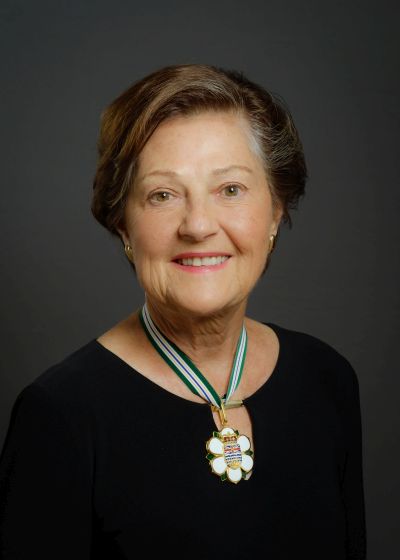
- Year: 2016
- City: Victoria
- Region: Vancouver Island/Coast
- Category: Community Leadership
Dr. Donald Rix *
Dr. Donald Rix was a widely recognized member of the medical profession, as evidenced by his fellowships in four medical colleges and societies. Dr. Rix was also a successful businessman, a generous philanthropist and a dedicated volunteer. He was active in provincial and national medical associations, was a member of several B.C. research foundations, and was a director of the B.C. Children’s Hospital Foundation.
He had a longstanding involvement in science and technology, being a member of the Premier’s Technology Council and sitting on numerous technology and health research boards. He was the chair at the Innovation and Science Council of B.C. and Chair of the International Committee and represented the Province and the Canadian government many times on science and technology missions to the Philippines, China and the Pacific Rim.
He served in various capacities at BCIT over 25 years, including teaching, and was a member of the Board of Governors (Past Chair) and the Foundation Board. At SFU he was chairman of the Council of the Segal Centre of Graduate Management Studies, a member of the President’s Club and a Board Member of the Morris J. Wosk Centre for Dialogue. At UBC he was a lifetime member of the President’s Circle, Emeritus Status Clinical Professor in the Department of Pathology and Laboratory Medicine, and Honorary Medical Alumnus in the Medical Alumni Society. At UNBC he was a member of the Board of Governors and served on various committees.
Dr. Rix and his family were active supporters of the arts community, including the Vancouver Art Gallery, Vancouver Opera and the Vancouver Summer Musical Festival of which he was the President. He and his family have donated millions of dollars for education, health and arts in B.C.
His honors include:
- Lifetime Leadership and Achievement Award, B.C. Tech Alliance
- Honorary Doctor of Technology, BCIT
- Honorary Doctor of Science degrees from the University of Western Ontario, BCIT, and SFU
- Appointed to Sovereign Order of St. John of Jerusalem, Knights Hospitaller and is a recipient of the Queen’s Golden Jubilee Medal
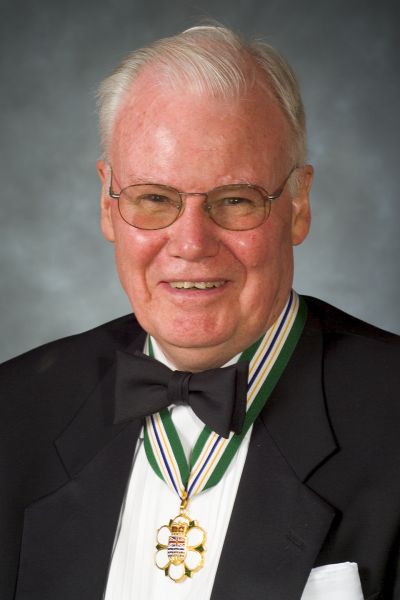
- Year: 2004
- City: Burnaby
- Region: Mainland/Southwest
- Category: Business
Dr. Geoffrey C. Robinson *
Dr. Geoffrey C. Robinson is recognized nationally and internationally as a leader and pioneer in the field of child health promotion. Over the last 45 years he helped reshape hospital structure and the delivery of care in communities to better meet the changing needs of children and to attend to their developmental needs. His advocacy for care by parent, day care surgery and multidisciplinary diagnostic centres, unheard of 30 years ago, strengthened the case for building the British Columbia’s Children’s Hospital. In 1985 he founded the B.C. Fetal Alcohol Syndrome Resource Group which encouraged early intervention programs for infants and prevention of fetal alcohol syndrome.

- Year: 1999
- City: Vancouver
- Region: Mainland/Southwest
- Category: Professions and other occupations
Robert Robinson *
Robert "Red" Robinson was a well-known broadcaster who used his public recognition to support and promote many fundraising initiatives.
Red began his career as a 16-year-old high school disc jockey and grew to be the most awarded radio entertainment performer in the history of British Columbia. He helped countless broadcasters get their start and gave valuable advice on how to succeed in the business.
Red was the first radio disc jockey to play rock 'n' roll in Vancouver, introducing his audiences to the likes of Elvis Presley and Buddy Holly in the 1950s and '60s. He impacted the history of rockabilly and rock 'n' roll music throughout North America, enough so that a musical based on his life, Red Rock Diner, has toured extensively.
In the 23 years he hosted the Timmy's Christmas Telethon for the BC Lions Society for Children with Disabilities, more than $100 millions was raised. He was honoured with a floor in the Lions International Children's building.
In addition to many broadcast and music industry awards, he received an honorary degree from the University of the Fraser Valley, the Canada 125 award, and the Queen Elizabeth II Golden Jubilee Medal.
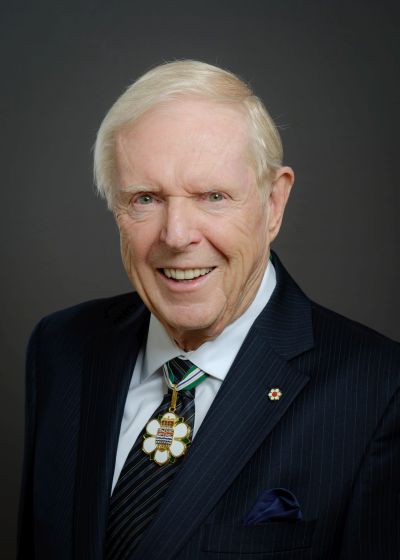
- Year: 2016
- City: Vancouver
- Region: Mainland/Southwest
- Category: Communications
Jim Robson
Mr. Jim Robson, for many British Columbians, will always be the voice of hockey. One of the most respected people in the sports media field, his work has touched thousands who grew up listening to his voice.
Mr. Robson has had a 47 year broadcasting career that began in Port Alberni at the age of 17, describing baseball, football, basketball, lacrosse, track and field, golf and – of course – hockey. He broadcast more than 2,000 National Hockey League games, connecting B.C. residents with their beloved NHL team.
Mr. Robson did national broadcasts of four Stanley Cup finals and five NHL all-star games, but is best remembered for his 24 years of covering the Vancouver Canucks on a network of radio stations across B.C. Over those years, British Columbians could always count on Mr. Robson for his even handedness and professionals and for his consistency. During his entire career, he never missed a game due to illness.
Respected equally by his peers, players, coaches, management and, of course, hockey fans, Mr. Robson may be even more popular and cherished than the players and teams he covered. His encyclopaedic knowledge of the game and his opinions are still sought out today by the Canucks and the news media, more than a decade after his retirement.
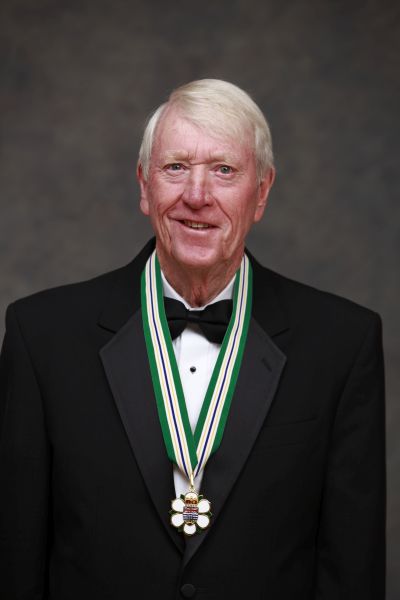
- Year: 2011
- City: Vancouver
- Region: Mainland/Southwest
- Category: Sports and Recreation
Dr. R. Hayward Rogers *
Dr. Hayward Rogers was a pioneer in complementary medicine and alternative treatments for cancer patients. He helped many patients change their lifestyles to improve their health and he formed the Centre for Integrated Therapy to assist cancer patients who had exhausted the normal medical treatments for their disease. He had unique successes with many cancer patients trying alternative remedies and drastically altering their lifestyles. He was a clinical professor emeritus at the University of B.C. faculty of medicine and one of the founders of the Centre for Integrated Healing which is the leading provider of complementary medical care in B.C.
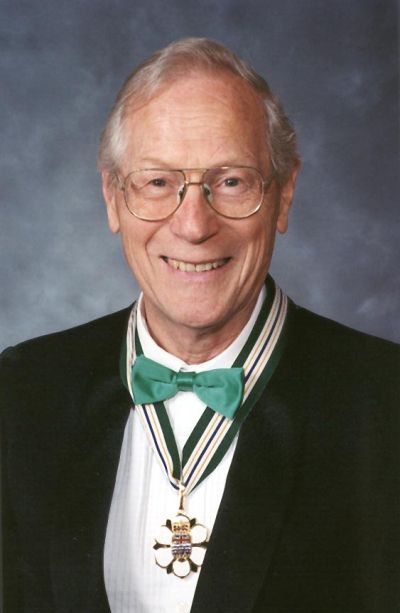
- Year: 2001
- City: Vancouver
- Region: Vancouver Island/Coast
- Category: Professions and other occupations
Honourable Robert G. Rogers *
Colonel, The Honourable Robert G. Rogers had an outstanding career as a leader of industry and as The Queen’s representative for British Columbia.
After serving in World War II in Britain and Europe, including participation in the D-Day Invasion, Mr. Rogers, a graduate civil engineer, commenced a career in forestry in 1945. Mr. Rogers joined Crown Zellerbach Canada Limited in Vancouver as Vice-President in 1960 and rose to the position of Chairman of the Board and Chief Executive Officer in 1976. During this time, he gave strong leadership to the forest industry through the many industry associations on which he served.
In 1982, Mr. Rogers became Chairman of the Canada Harbor Place Corporation in Vancouver. His crisp, solid management style was welcomed on the directorships of many public corporations and on a myriad of business, professional and advisory bodies.
In 1983 he was appointed Lieutenant Governor of British Columbia. During his term of office, His Honour expanded the opportunities to visit Government House to a broad range of individuals and organizations through the hosting of an increased number of smaller events, thus personalizing contact with guests of the House.
He initiated the establishment of the Government House Foundation to serve both as an advisory council and as a vehicle by which contributions might be made to enhance Government House.
During his Term, and with the tireless support of Mrs. Rogers, Government House and its grounds were improved, a corps of volunteers was recruited to assist with floral arrangements and student tours, and a project founded to replace the stained glass window lost in the 1957 fire, a project which was successfully concluded in May of 1990 with the dedication of the new heraldic window.
Mr. Rogers’ community service was outstanding. A member of many Boards and Councils; he also was, through the years, an active supporter of Simon Fraser University from which he received an Honorary Doctor of Laws Degree in 1982.
Mr. Rogers is an Officer of the Order of Canada and a Knight of the Order of St. John.
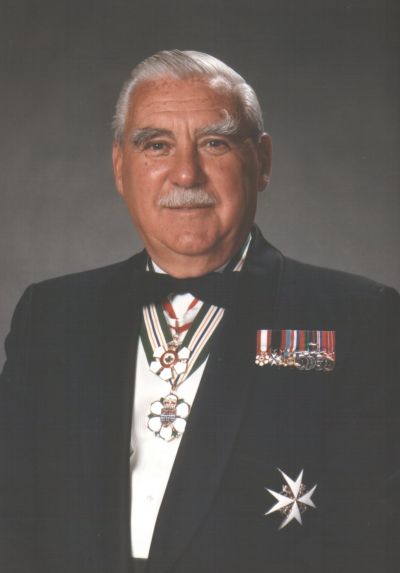
- Year: 1990
- City: Victoria
- Region: Vancouver Island/Coast
- Category: Other
Norman J. Rolston *
Norman Rolston worked as a counsellor, dedicated to the needs of those less fortunate than himself. His invention of the Able Walker has saved the taxpayers millions of dollars by giving many immobile individuals a way to be active for better mental and physical health.
Norman built his first walker for his aunt who suffered from arthritis. One day in 1986, while watching her trying to walk across the floor pushing a kitchen chair, he had an idea to attach wheels. His prototype walker included swivel casters for steering and hand brakes to give his aunt renewed freedom and independence.
The biggest challenge was overcoming the skepticism of the medical profession but Norman was undaunted. He met with the Surgeon General of the United States who thought highly of the invention. Following that meeting, the medical profession took a renewed interest in Norman’s device. Doctors soon had patients who could never before attend their clinics come in with their Able Walkers, confident and mobile.
Unselfishly, Norman decided to gift his invention to the world by not patenting it. For this, he won the first Humanitarian of the Year Award presented by the International Society of Inventors.
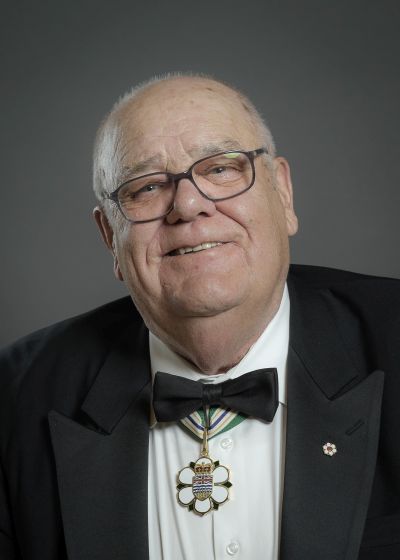
- Year: 2015
- City: Langley
- Region: Mainland/Southwest
- Category: Science and Technology
Christopher Duncan Rose
For 50 years, Christopher Rose has served British Columbians, young and old, with the greatest distinction as teacher, school principal and school trustee. His greatest focus has been to support those with special needs.
As an advocate for children with special needs and after he retired from the School District, Mr. Rose accepted the position of executive director of Giant Steps West, a program for children with autism spectrum disorders. He held this position for three years.
Giant Steps West later became known as the Chris Rose Therapy Centre for Autism. Mr. Rose founded the Chris Rose Foundation, which has continued to be instrumental in raising funds for the Centre. Since 1998, Mr. Rose has also organized biannual international conferences on autism spectrum disorders.
Mr. Rose has also served 10 years as an elected member of the City of Kamloops Mayor’s Task Force for People with Disabilities and has travelled to Armenia several times to help develop programs and supports for special needs children in that country.
Mr. Rose has earned many awards including the Rotary International Scholarship for Teachers of the Handicapped, and the Hazel Davy Award for Outstanding Service to Handicapped Children.
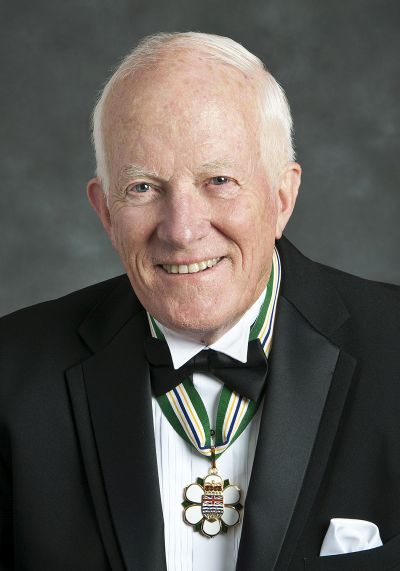
- Year: 2010
- City: Kamloops
- Region: Thompson/Okanagan
- Category: Professions and Other Occupations
Elana Rosenfeld
Elana Rosenfeld’s visionary leadership and dedication to ethical values evolved Kicking Horse Coffee into Canada’s largest organic coffee company and most trusted coffee brand. 32 years ago Elana moved from Toronto to the small community of Invermere, British Columbia and co-founded Kicking Horse Coffee. As CEO from 1996 to 2023, she grew her business into a major North American company.
Elana’s commitment to sustainability and community prosperity has made her a respected local leader, and created economic diversification and employment in B.C.’s Interior. A role model in social enterprises, she introduced Fairtrade and certified organic partnerships, and championed gender diversity and female leadership. Elana’s love for nature led her to chair the Nature Conservancy of Canada (NCC) from 2019-2021, where she spearheaded significant conservation efforts and advancements in diversity and inclusion.
As a philanthropist, she has donated millions to conservation causes, becoming one of Canada’s leading advocates for nature. Her remarkable achievements have earned her numerous accolades, including B.C. Business Entrepreneur of the Year and recognition for Kicking Horse Coffee as the Best Place to Work in Canada. Elana’s journey epitomizes resilience, innovation, and a steadfast dedication to making a meaningful impact, and setting a high standard for ethical business leadership and community engagement across B.C.
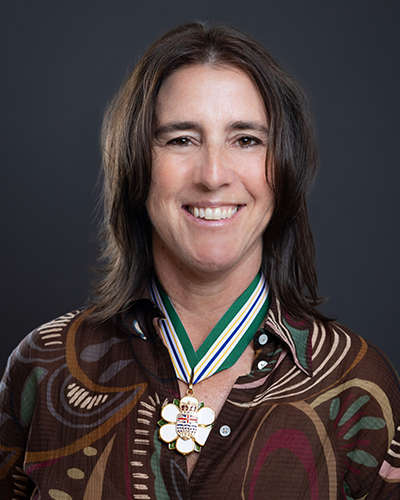
- Year: 2024
- City: Invermere
- Region: Kootenay
- Category: Community Leadership
Chief Councillor Ellis Ross
Ellis Ross has led the 1,500-member Haisla Nation to new levels of prosperity and confidence in his three years as elected Chief Councillor and six years previously as elected councillor. Moving beyond the generational poverty and social challenges they have faced, the Haisla have new confidence and hope for the future.
Mr. Ross is demonstrating, daily, how respectful relationships with governments and third parties can produce meaningful benefits to the average Haisla member. His vision is becoming reality through investments in education, community facilities, job creation and economic partnerships.
In 2012 Ellis Ross was named as the inaugural Chair of the Aboriginal Business and Investment Council. In 2013 he received the Queen’s Diamond Jubilee Medal and spoke on behalf of all the recipients at the Vancouver ceremony.
Last year he was the only First Nations leader among 25 Canadians invited by then-Finance Minister Jim Flaherty to a public policy/Budget retreat. The Haisla became, in 2013, the first BC band to receive ten years of block funding from Aboriginal Affairs and Northern Development Canada in recognition of the Haisla’s exceptional management of Band finances and affairs.
Ellis Ross is showing how a First Nation can work with industry, government and local communities. His forward thinking and ability to build relationships for economic development and high-paying jobs has helped encourage business to prepare to invest more than $15 billion into Kitimat for LNG projects.
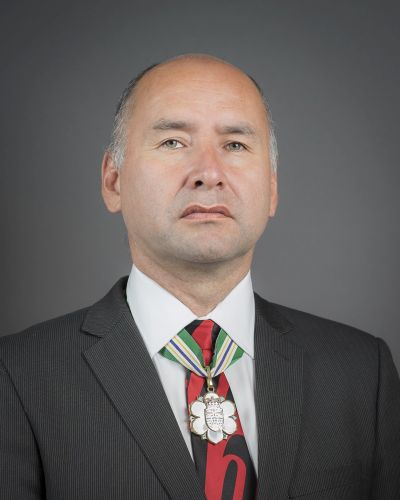
- Year: 2014
- City: Kitamaat Village
- Region: Northern B.C.
- Category: Community Leadership
R. Ian Ross *
In 1938, while a student at McGill and on the occasion of his 21st birthday, Ian Ross was given The Butchart Gardens by his grandparents, Mr. and Mrs. R. P. Butchart.
After distinguished war service in which he was mentioned in dispatches, Mr. Ross returned to assume the active management of The Butchart Gardens in 1946. In following years, apart from increasing the beautification of the Gardens and their reputation as one of the loveliest in the world, Mr. Ross added night illumination, symphony concerts, sunset shows and the world famous Ross fountain. Through the efforts of Mr. Ross, the Butchart Gardens have, in every respect, become world famous and a delight and inspiration to all British Columbians, Canadians and visitors from many countries of the world.
Mr. Ross played gracious host to royalty, heads of state, diplomatic delegates and citizens from all corners of the globe. During Expo ’67 more than thirty Heads of State were guided and entertained by Mr. and Mrs. Ross. This generosity was repeated during Expo ‘86. For this the Government of British Columbia is greatly indebted. Always concerned for the physically disabled, Mr. Ross ensured that facilities were available to assist such individuals at a time when these things were given little thought.
In addition to his management of the Gardens, Mr. Ross was active in the community donating to numerous worth-while causes and serving on many Boards and Committees particularly those related to the visitor industry. Past President of the Victoria and Island Publicity Bureau, Mr. Ross also served on the B. C. centennial committees in 1966, 1967 and 1971. He was the Victoria Chamber of Commerce Man of the Year in 1968.
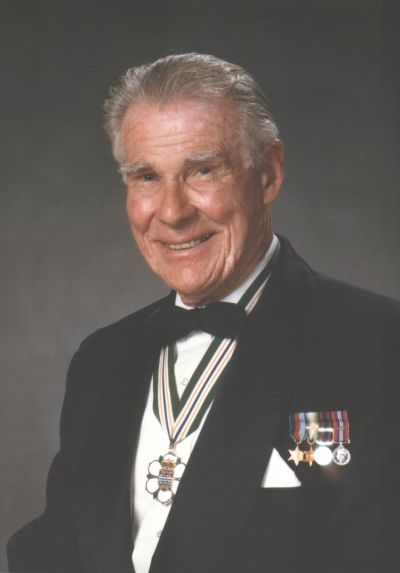
- Year: 1990
- City: Victoria
- Region: Vancouver Island/Coast
- Category: Business
Jane Rule *
Jane Rule is celebrated internationally for her fiction and her non-fiction. Her career began in 1964 with the publication of her novel Desert of the Heart. Eleven books have followed. She was an observer of social and emotional relationships, and she wrote with warmth and candor.
She came to Canada from the U.S.A. in 1956 and worked as assistant director of International House at UBC. She taught some English before retiring to Galiano Island in 1976. She served on the executive of the Writers’ Union of Canada. She advocated free speech and gay-rights. On the subject of British Columbia’s natural spaces, she was both passionate and effective. B.C. Author Achievement Day, she was noted for having steadfastly and uniquely displayed exceptional and inspirational leadership, courage, and creativity in the literary arts since her arrival in Vancouver. She was mentor to many writers and artists.

- Year: 1998
- City: Galiano Island
- Region: Vancouver Island/Coast
- Category: Arts and Culture
Dunc Russell *
Mr. Dunc Russell was in the forefront of development of Parks and Recreation facilities within several communities in BC.
Called by some “the father of municipal recreation in BC”, he was credited with presenting the first comprehensive Parks and Recreation Plan in Canada to New Westminster (1956), and with building Canada’s first municipally owned and operated senior citizens’ centre (Century House, New Westminster (1958)), the first multi-purpose recreation centre in BC in Port Alberni (1967), and the internationally admired Oak Bay Recreation Centre (1975).
The response to the “Towards a Better Age” provincial task force on senior citizens, in which he played a major part, was overwhelmingly positive (1989).
Dunc Russell received municipal, provincial, national and international recognition for his work.
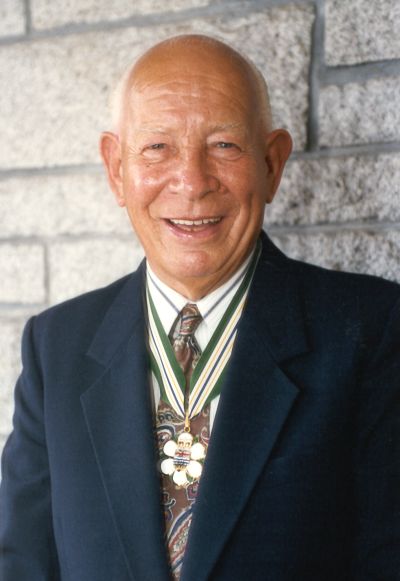
- Year: 1993
- City: Victoria
- Region: Vancouver Island/Coast
- Category: Community Leadership
S
Carole Sabiston
Carole Sabiston is an outstanding artist who has developed a bold art form so strongly individualistic as to be unique in its way of expression.
Born in London, England, she moved to Victoria where she has lived, with a few breaks, since 1952. A student at both the universities of Victoria and British Columbia, she taught school in Victoria and Vancouver after graduation.
She began her professional career as a painter but found that painting did not allow her to achieve the effect she was seeking in her work – light, movement and texture. Her own technique has evolved over the years.
With multiple layers of netting and fabrics, matte and metallic, she builds translucent and opaque passages, creating shifting lights and continuous, shimmering movements of water and air.
Carole Sabiston’s painted murals, hangings, aerial sculptures and tapestries have been exhibited across Canada and in Europe in more than 35 shows including 18 solo shows.
It was Carole Sabiston who created the dramatic sunburst which was the backdrop of the opening ceremonies at Expo ’86 and it is Carole Sabiston who is presently designing the Commonwealth Cape which will be used in the promotion and ceremonial events surrounding the 1994 Commonwealth Games.
She is a member of the Royal Canadian Academy and 1987 winner of the Saidye Bronfman Award for Canada for Excellence in Art.
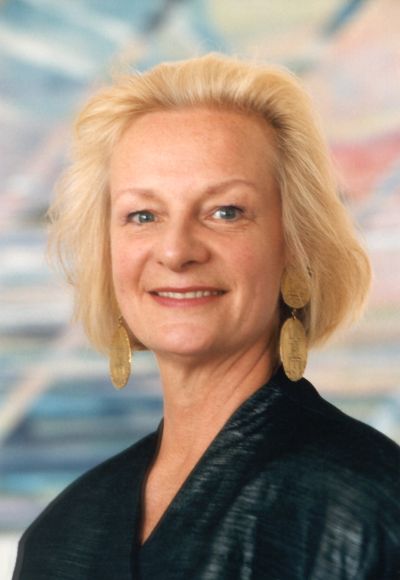
- Year: 1992
- City: Victoria
- Region: Vancouver Island/Coast
- Category: Arts and Culture
Dr. Martha Salcudean *
Born and educated in Romania, Martha Salcudean came to Canada in 1976 to teach at the University of Ottawa. She was a respected researcher in fluid mechanics and heat transfer. Dedicated to strengthening the collaboration between universities and industry, her industrial partners included the Atomic Energy of Canada. She was appointed head of mechanical engineering at UBC in 1985 and later associate vice-president of research. Since locating in B.C., she increasingly concentrated her research efforts on the forest industry.
She was chair of Weyerhauser Industrial Research in computational fluid dynamics. In 1991, the Science Council of British Columbia awarded her the Science and Engineering Gold Medal. She was a fellow of the Royal Society of Canada and the Canadian Academy of Engineering. She was the recipient of several provincial and national engineering awards.
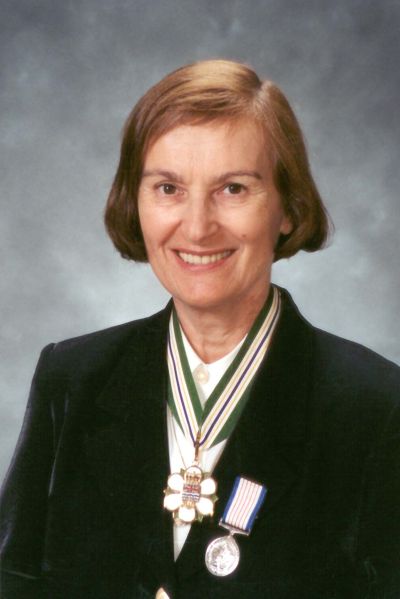
- Year: 1998
- City: Vancouver
- Region: Mainland/Southwest
- Category: Education
Gian Singh Sandhu
Gian Singh Sandhu founded Jackpine Forest Products Ltd. in 1987, now the 12th largest lumber producing company in B.C. with nearly 300 employees. Under Sandhu’s guidance, Jackpine has been a leader in embracing new technologies and creating value-added products for domestic and foreign markets. The company makes a point of hiring men and women from diverse backgrounds and of employing companies owned by First Nations people. Jackpine has grown steadily through a time when many forestry companies are shrinking. Sandhu supports many charities, matches his employees’ donations to several charities, created two bursaries to help high school students pursue post-secondary education and provided funding for Williams Lake to build a crematorium. Jackpine is also a major sponsor of this year’s B.C. Winter Games.
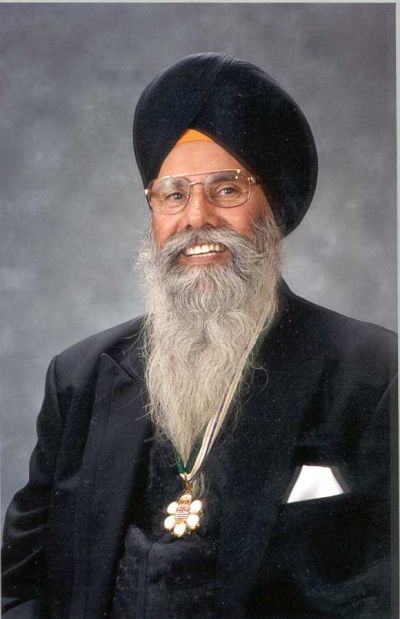
- Year: 2002
- City: Williams Lake
- Region: Cariboo
- Category: Industry
Balwant Sanghera
Born in India, Balwant Sanghera moved to B.C. in 1966 where he has become a well-respected multicultural advocate, and a bridge builder between communities and generations.
After a teaching career, Mr. Sanghera received his Master of Education from UBC and in 1990 became a school psychologist with the Burnaby School District. He developed an educational program for the Maples Adolescent Centre, which serves the province’s most difficult adolescents with mental health and behavioural problems. He has mentored and fostered similar programs province wide.
Mr. Sanghera’s leadership has resulted in positive outcomes to many issues facing Richmond’s new Canadians. He is currently president of both the Richmond Multicultural Concerns Society and the Punjabi Language Education Association of British Columbia. He is chair of Richmond’s Intercultural Advisory Committee, vice president of the East Richmond Community Association and a long-time organizer of Multi-Fest, a summer festival to celebrate Richmond’s diversity.
Mr. Sanghera is a superb role model for Indo-Canadian youth. He organized an important forum in February 2003 directed at preventing youth violence in the Indo-Canadian community. He is also a regular contributor to community newspapers, TV and radio, promoting youth and multicultural issues.
Mr. Sanghera is a former Board Member of the College of Naturopathic Physicians of British Columbia, and is a member of the Advisory Board for NOW Television. Past positions include senator of Simon Fraser University and chair of the Committee of Ombudspersons of the BC Teachers’ Federation.
In 2002, Mr. Sanghera was awarded the Queen’s Golden Jubilee Medal.
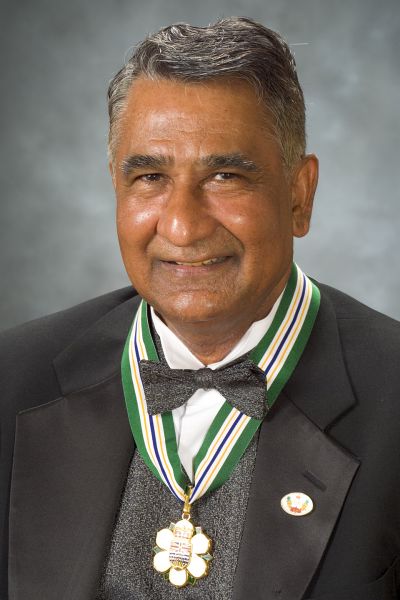
- Year: 2004
- City: Richmond
- Region: Mainland/Southwest
- Category: Community Leadership
Dr. William L. Sauder *
William Sauder was a leader in the forest industry and in education and health, and played a significant role in the social and economic development of this province.
For more than 25 years as chairman and CEO of International Forest Products Ltd., he directed the company’s growth into one of Western Canada’s larger and successful logging and saw-milling operations. He was chair of Sauder Industries Ltd., a world leader in innovation and marketing.
Mr. Sauder’s business acumen led to his membership on the Board of Directors of the Toronto Dominion Bank, the British Columbia Development Corporation and the Executive Committee of the Board of Directors of BC Hydro. He was also a member of the Board of Directors of the World Presidents’ Organization.
Success in business went hand-in-hand with outstanding service to the community, and Bill Sauder was a highly respected figure in the world of philanthropy and medical research. He served on the Board of Directors of the Heart and Stroke Foundation of B.C. and the Yukon and supported numerous important medical initiatives at UBC.
Thanks to the generosity of Mr. Sauder and his family, UBC now has the Sauder Family Chair in Pediatric Infectious Diseases, the Sauder Family Chair in Viral Diseases of Children, the Sauder Family and Heart and Stroke Foundation Professorship in Clinical Stroke Research, and the Sauder Family and Heart and Stroke Foundation Chair in Cardiology. Last year he made it possible for the UBC Faculty of Commerce to establish a business school.
A UBC graduate, Mr. Sauder served the university for 12 years, including two terms as its chancellor. He received an Honorary Doctor of Laws Degree from UBC in 1990. UBC renamed the Faculty of Commerce to the Sauder School of Business after a major donation from the Sauder family.
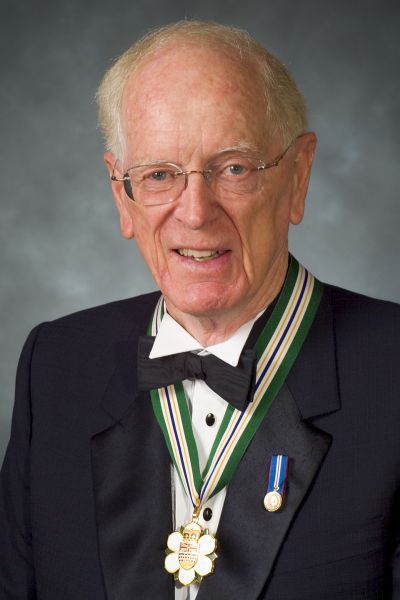
- Year: 2004
- City: Vancouver
- Region: Mainland/Southwest
- Category: Business
William G. Saywell
Throughout his distinguished career, William Saywell has tirelessly promoted British Columbia both at an educational level and on an international scale.
Raised in Lake Cowichan, William Saywell completed his doctorate at the University of Toronto, majoring in 20th Century Chinese affairs.
He has lived and travelled throughout East Asia including a one-year posting as First Secretary of the Canadian Embassy in Beijing. He has written and lectured extensively on such topics as Chinese history and current Chinese political, economic, foreign and military affairs.
Upon his return to the University of Toronto, he held a number of senior administrative posts including Vice-Provost and Chair of the Department of Asian Studies.
In 1983 he was offered the presidency of Simon Fraser University, serving two highly successful five-year terms. Under his leadership, the university grew by 40 per cent and he headed a $65-million fundraising drive.
In 1993, William Saywell was named president and chief executive officer of the Asia Pacific Foundation, an independent organization which orients Canadian businesses to opportunities in the Pacific Rim. In addition he serves on a number of boards including Westcoast Energy, and SPAR Aerospace Ltd. He is currently chair of the Canadian National Committee of Pacific Economic Cooperation.
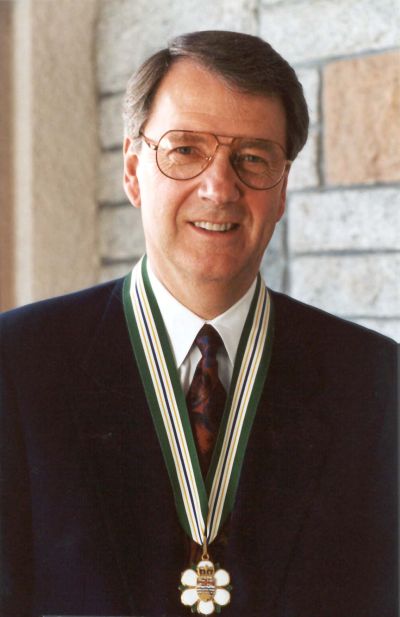
- Year: 1994
- City: Vancouver
- Region: Mainland/Southwest
- Category: Education
Dr. Martin Schechter
Physician and researcher Dr. Martin Schechter has made renowned contributions to the fields of AIDS research, prevention and care.
When Martin Schechter first began his work on AIDS research in 1983, there were no reported cases yet in B.C. He embraced the necessity of an appropriate and humane response to HIV infection at a time when it was not popular to do so.
In 1989, he helped organize the Fifth International Conference on AIDS which attracted 12,000 delegates from around the world. In 1990, Dr. Schechter was one of only 10 people worldwide invited by the World Health Organization Global Program in AIDS to sit on its Steering Committee on Epidemiology, Forecasting and Surveillance.
Martin Schechter co-founded the Canadian HIV Trials Network, which undertakes clinical trials of promising new therapies, and now has five regional offices and 25 satellites across Canada.
He is the author of more than 100 articles in scientific journals and has attracted more than $19 million in research grants to B.C. He is one of only two Canadians awarded the National Health Scientist Award in AIDS by Health and Welfare Canada.
Martin Schechter continues to be instrumental in pioneering landmark achievements in AIDS research which have benefitted not only British Columbians but people around the world.
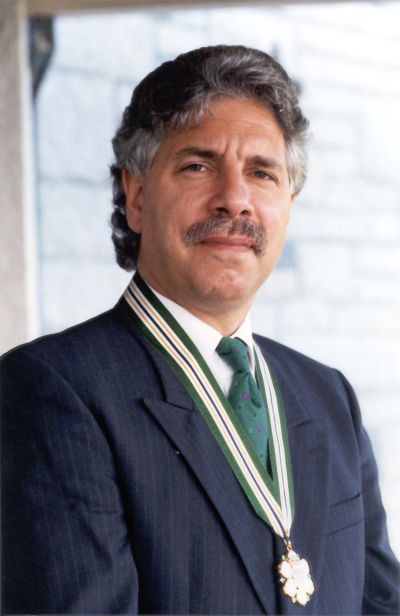
- Year: 1994
- City: Vancouver
- Region: Mainland/Southwest
- Category: Science and Technology
Ruth Schiller
Ruth Schiller has been a tireless advocate for the arts and artists in British Columbia.
Mrs. Schiller and her late husband broke the ground and developed on of the first apple orchards in the desert country of Osoyoos. Her sense of responsibility extended to her fellow orchardists, for she was instrumental in extending the irrigation system in the arid South Okanagan.
In addition to raising a family and managing a fruit stand business for 20 years, she became a leader in the cultural, educational and economic development of her community.
Focusing much of her attention on being an advocate for the artistic and cultural communities, she became a founding member of her local Oliver/Osoyoos Arts Council. Expanding her horizons, there followed membership in the British Columbia Arts Board, the Canadian Conference of the Arts, and the Canada Council.
Outside the arts, Ruth Schiller has been involved in a very long list of community organizations including the Osoyoos Desert Society, Okanagan University College and the Economic Development Corporation of Osoyoos.
Our recipient has been one of the main motivating forces for the arts in British Columbia, a community leader with seemingly limitless energy who is respected for her work on a provincial and national level.
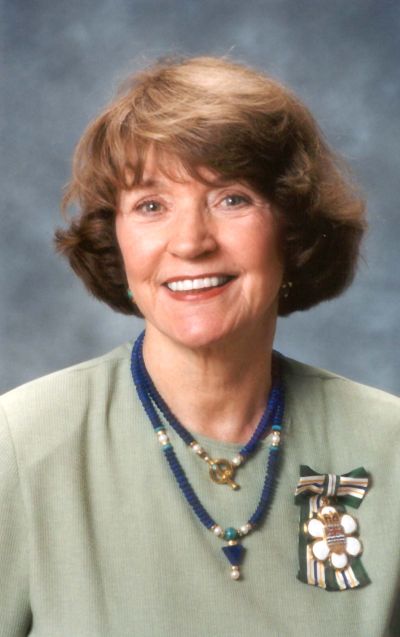
- Year: 1996
- City: Osoyoos
- Region: Thompson/Okanagan
- Category: Arts and Culture
Dr. Dolph Schluter
Dr. Dolph Schluter is the world’s foremost authority on the role that ecology plays in the origin and divergence of new species. His work has fundamentally changed our understanding of evolution, revealing the ecological mechanisms driving speciation and probing the factors generating and maintaining biodiversity.
His seminal book, The Ecology of Adaptive Radiation, has received universal praise as one of the most important treatises on speciation and the origin of ecological diversity since Darwin’s. Throughout his research career, Schluter has combined creative experimental studies, incisive field observations, and novel analytical tools to push the field forward and earn his reputation as the leading evolutionary ecologist worldwide. Species are the result of genetic changes that make one group of organisms distinct and reproductively isolated from another (speciation). What exactly drives these genetic changes has been a major puzzle in biology. Schluter used stickleback fishes from B.C. to obtain evidence that it is natural selection in different environments that is the key driver of speciation (“ecological speciation”). Surprisingly, he also showed that speciation is repeatable, in that the same stickleback mating preferences have evolved independently in different B.C. lakes.
Schluter and his colleagues have pursued this work to the genetic level, determining the key genes that have changed as stickleback adapt to the different environments in which they occur in B.C.
Schluter is also a devoted and talented mentor and teacher. He has directly supervised 29 graduate students and 30 post-doctoral fellows and taught thousands of UBC students how to think about and analyze biological data. In the 1980s, Schluter initiated an approach to teaching statistics that centres around developing a deep curiosity about the questions that then drive students to find answers. The statistics courses that he developed form the basis for how statistics is taught to biologists around the world.
With Michael Whitlock, Schluter authored a textbook on statistics, The Analysis of Biological Data, which has been widely adopted by over 200 universities worldwide. Schluter’s excellence in teaching has been recognized by the 2010 Killam Mentoring Award from UBC. From 2003-2007, Schluter served as the director of UBC’s Biodiversity Research Centre. During that time, he launched the Beaty Biodiversity Museum, Vancouver’s only natural history museum. Schluter has also contributed his knowledge to help conserve freshwater fish in B.C.,
particularly by helping draft the recovery strategy for sticklebacks and co-developing guidelines to protect these and other endangered fishes in the province.
With over 49,300 citations to his research, Schluter brings enormous recognition and prestige to British Columbia. He has received the premier life-time achievement awards given internationally in his field: the Sewall Wright Award and the Darwin-Wallace Medal. His long list of honours include membership in the Royal Society of London, the Royal Society of Canada, the American Academy of Arts and Sciences, and the National Academy of Science.
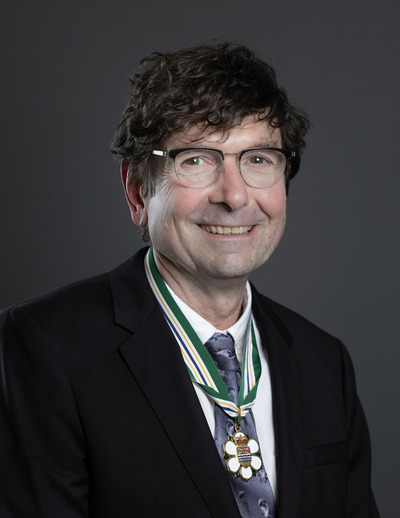
- Year: 2021
- City: Vancouver
- Region: Mainland/Southwest
- Category: Science and Technology
Alfred J. Scow *
Alfred Scow began fishing with his father at the age of six. By 15 he had his own boat, fishing for salmon, and later he financed his university education as a crewman on halibut and salmon boats.
Mr. Scow was the first Aboriginal graduate of the UBC Faculty of Law in 1961, and the first Aboriginal person in Canada to be appointed as a judge, which he served as for 23 years.
Mr. Scow had a profound influence on those with whom he came in contact with. Over the course of many years, he made an immeasurable contribution to the legal community, the aboriginal community, and to society at large, at local, national and international levels.
He was an extraordinary man of inspiration and vision. During his tenure as a Judge, his peers regarded him as knowledgeable and wise. Today, a number of aboriginal men and women are involved in the law and other professions because he was such a positive role model. He was also a role model for those interested in becoming contributing members of society and community leaders.
Mr. Scow represented Canada as a member of the Amerindian Lands Commission in Guyana, South America, and was chair of an advisory review committee to the Workers’ Compensation Board. He was the founding president of the Scow Institute for Communicating Information on Aboriginal Issues. Mr. Scow gave enormously of his time, expertise and wisdom as both a volunteer and through his life’s work. He also fundraised for good causes, including single-handedly raising funds from provincial judges to fully endow a bursary for needy law students. He actively participated in many boards and committees respecting law, education and community.
In addition to many other honours, Mr. Scow was awarded the Order of Canada, the Queen’s Golden Jubilee Medal, and the Canadian Indian Arts Foundation Aboriginal Achievement Award.
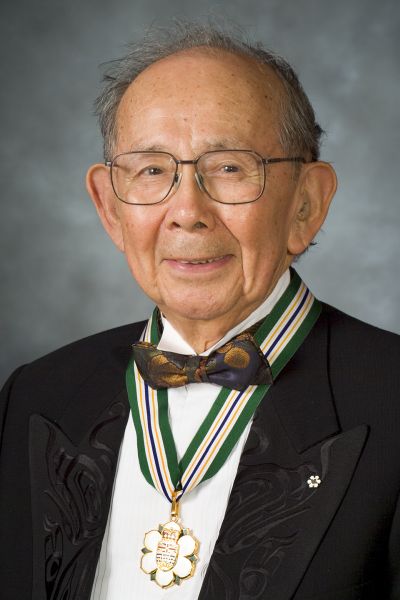
- Year: 2004
- City: Vancouver
- Region: Mainland/Southwest
- Category: Professions and other occupations
Dr. Charles Scudamore
Dr. Charles Scudamore is one of British Columbia’s foremost physicians, whose outstanding work is extending the lives of British Columbians diagnosed with serious cancers while working toward the day when there is a cure.
A leading surgical expert in liver transplantation, hepatobiliary oncology and trauma, Dr. Scudamore is staff surgeon at Vancouver General Hospital and BC Children’s Hospital, surgical director of the BC Liver Transplant Program and developed Hepatobiliary and Pancreatic Surgery at the University of British Columbia. In addition, Dr. Scudamore is the former president of the North Pacific Surgical Association. He is also a tremendous researcher, teacher and caring physician.
Dr. Scudamore is an expert on the early recognition of pancreatic cancer as well as advanced colorectal metastases to the liver. He has led efforts to increase the number of liver transplants performed in British Columbia. In 2012, there were 65 transplants, up from the then-record 2011 total of 56. Each of these transplants marks a new beginning of a patient’s life.
Dr. Scudamore’s research – including the creation and support of the British Columbia Pancreatic Research Network – and other efforts to improve outcomes for patients with pancreatic cancer, offers hope to the approximately 380 new cases diagnosed each year in British Columbia.
Working above and beyond the call of duty, Dr. Scudamore is helping patients live longer and more productive lives. In recognition of his outstanding contributions and service to fellow citizens, he was a recent recipient of the Queen Elizabeth II Diamond Jubilee Medal.
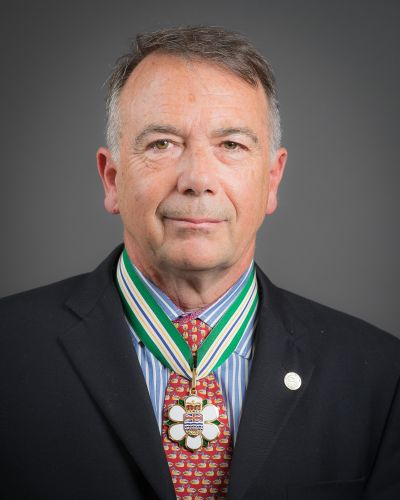
- Year: 2013
- City: Vancouver
- Region: Mainland/Southwest
- Category: Professions and other occupations
Allan Seckel
Allan Seckel is a visionary leader whose career spans law, public service, healthcare and community advocacy. As B.C.’s Deputy Attorney, he spearheaded Canada’s first apology legislation and new rules of court and launched the Downtown Eastside Community Court. As cabinet secretary and head of the B.C. Public Service, he led 30,000 employees and modernized government operations.
Later, as CEO of Doctors of BC, he championed equity, collaboration, and engagement in the healthcare system. Additionally, Allan has chaired LegalAidBC, BC Housing and Covenant House Vancouver; chaired the Mobility Pricing Independent Commission; served on the boards of ICBC, Translink and the Telus Community Board; and acted as the first Fair Practices Commissioner for WorkSafeBC.
In 2023, he was appointed to amalgamate 11 health professional regulators into two regulatory colleges, subsequently becoming chair of both new colleges. To every role, Allan brings strategic vision, compassion and a deep commitment to public good — driving meaningful change across B.C.’s legal, social and civic landscapes.
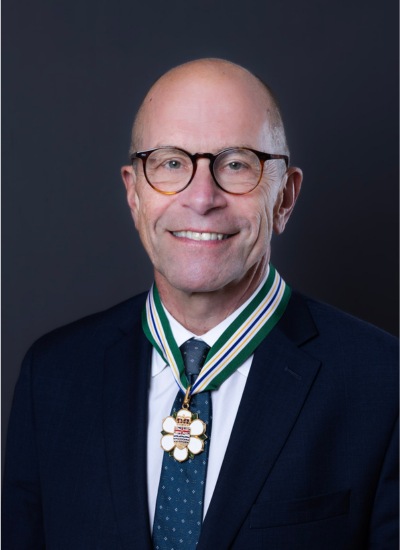
- Year: 2025
- City: Vancouver
- Region: Mainland/Southwest
- Category: Public Service
Gary S. Segal
Born and raised in Vancouver, Gary Segal is renowned for his expansive philanthropic endeavours that transcend geographical and cultural boundaries. Described as a catalyst for change, Gary’s commitment to humanitarian causes has left an indelible mark on communities near and far. Notably, as capital campaign chair for Ronald McDonald House BC and Yukon, Gary played a pivotal role in raising $32 million to establish a new, state-of-the-art facility at B.C. Children’s Hospital, vastly expanding support for over 2,000 families annually across B.C. and Yukon. His dedication extends globally through the Bring Back Hope initiative he founded following a transformative experience in Ethiopia, where he champions accessibility to life-saving surgeries for severely disadvantaged children in dire medical need. Gary’s efforts have garnered prestigious recognition, including the Order of Canada, Queen Elizabeth II Diamond Jubilee Medal and appointments to significant boards such as the American Jewish Joint Distribution Committee (JDC).
At UBC, Gary’s impact is profound, particularly through his support for the Faculty of Medicine’s Branch for Global Surgical Care, where his contributions have funded ground breaking initiatives and the development of a pioneering Master of Global Surgical Care program. As Chair of the VGH & UBC Hospital Foundation, Gary continued to drive innovation in healthcare, ensuring sustainable and exemplary care. His unwavering dedication to philanthropy, coupled with his compassionate leadership, exemplifies his role as a transformative force in improving healthcare and quality of life globally.
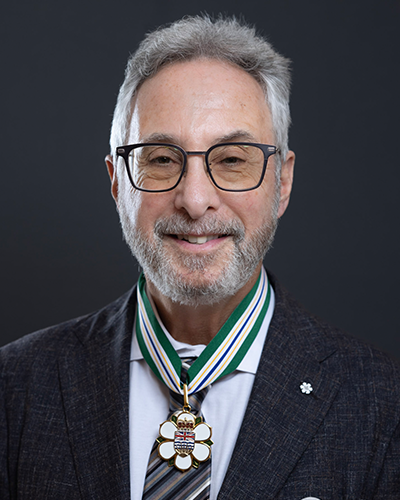
- Year: 2024
- City: Vancouver
- Region: Mainland/Southwest
- Category: Community Leadership
Joseph Segal *
Joseph Segal, an outstanding British Columbian and a Canadian merchandising legend, gave unstintingly of himself and his resources for the betterment of our province.
Born in Vegreville, Alberta, Mr. Segal served overseas with the Calgary Highlanders for two and a half years.
After moving to Vancouver, he opened a small retail family clothing store there in 1950. It was the successful start of what became a chain of 70 Fields Stores - a corporation which acquired Zellers in 1976 and eventually became the largest single owner of the Hudson’s Bay Company.
Joseph Segal was a self-made entrepreneur whose legendary acumen and energies were turned as often to the needs of the community as to the demands of the executive suite.
He was deeply involved in the Jewish Community throughout his life. Many other organizations as well benefited from Mr. Segal’s munificence, whether they were charitable organizations such as the Variety Club, the United Way and the Vancouver Children’s Hospital or Simon Fraser University.
That university’s downtown Harbour Centre campus might have remained a dream if not for Joseph Segal’s enthusiastic contributions and negotiating talents. Simon Fraser University and two private sector interests were able to strike a deal which provided a superb downtown campus virtually rent-free for 30 years.
It has been said of Joseph Segal – if there is a good and noble cause, he is there.
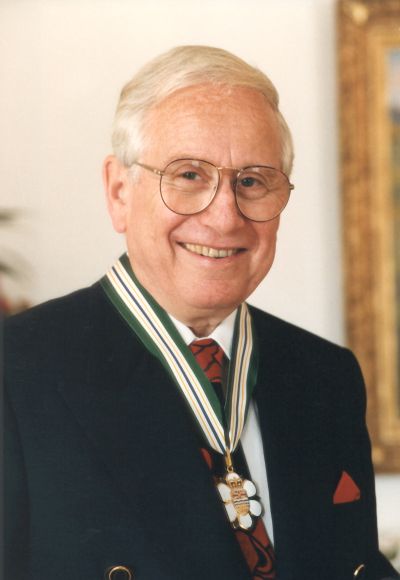
- Year: 1992
- City: Vancouver
- Region: Mainland/Southwest
- Category: Business
Lorne R. Segal
Lorne Segal has inspired a generation of new philanthropists through his personal generosity, leadership and extraordinary kindness.
Acknowledged by community, business and philanthropy leaders across Canada for his ability to engage and motivate others, Mr. Segal, president of Kingswood Properties Ltd. and a director of Kingswood Capital Corporation, has used his business success to propel his community giving.
Mr. Segal is the chair of Coast Mental Health Foundation’s Courage to Come Back Awards. Through his efforts over the past 17 years, this has become one of the premier fundraising gala events in Vancouver. During Mr. Segal’s past 10 years as Chair, it has raised in excess of $13 million providing housing, employment and other support services to over 4,000 people annually living with mental illness in B.C.
Lorne Segal is also the Founding Chair of Free the Children’s We Day Vancouver, a social movement among youth that promotes social responsibility and global citizenship. We Day Vancouver brings together 20,000 young leaders annually to inspire them to improve their community and the world. Mr. Segal’s seminal leadership over the past 9 years has served as the model for growth of We Day to 14 cities around the world positively impacting the lives of hundreds of thousands of young people.
Mr. Segal has received the Justice Institute of British Columbia Foundation Community Leadership Award and the Queen Elizabeth II Diamond Jubilee Medal for service to his community. Capilano University recently conferred an Honourary Doctor of Letters (D. Litt) on him (and his wife, Melita). He is a long serving Director of the Vancouver Board of Trade and a member of Simon Fraser University Dean’s External Advisory Board, Segal Graduate School of Business. He is both a successful fundraiser and a successful friend-raiser, bringing committed and passionate people together to combine their energies and create great change.
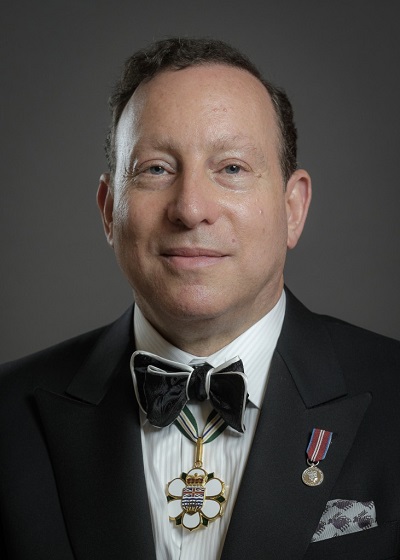
- Year: 2014
- City: Vancouver
- Region: Mainland/Southwest
- Category: Community Leadership
Dr. Sydney Segal *
Dr. Sydney Segal was a Canadian clinician, medical researcher, teacher and humanist whose interests extended beyond medicine into ethics, social welfare and the administration of justice for children.
His pioneering work in the then-emerging field of neonatology is impressive. Among his contributions: he invented the first effective apparatus to substitute mechanical for natural breathing in infants with respiratory failure; he established the first intensive care nursery in Canada; and he was instrumental in the establishment of British Columbia’s infant transport system which has been copied world-wide.
Dr. Segal was among the earliest physicians to dedicate themselves to cystic fibrosis and Sudden Infant Death Syndrome, establishing local parent support groups. One of his voluntary community activities was his continuing service in the direct counselling of bereaved parents.
His ground-breaking work in the treatment of infants born to drug-dependent mothers provided a great contribution to the welfare of those who enter this world with serious problems, through no fault of their own.
Sydney Segal’s dedication and innovations in the field of children’s health have been widely recognized with many honours and awards, including the Order of Canada.
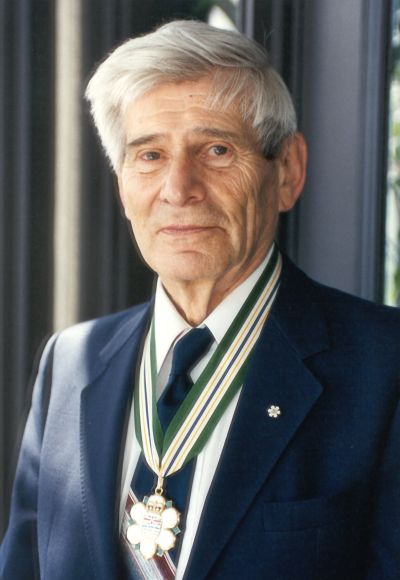
- Year: 1993
- City: North Vancouver
- Region: Mainland/Southwest
- Category: Professions and other occupations
Baljit Sethi
Ms. Baljit Sethi has dedicated her life to helping immigrants to Canada and pursuing equality and justice for all Canadians.
Born in Lahore, India, Ms. Sethi immigrated to Canada in 1972. In 1974, she began working with the Immigrant Services Society of British Columbia as a family counsellor and then as a Settlement Counsellor, assisting newcomers to Canada with settlement services.
In 1976, she founded the Immigrant Services Society of Prince George, now known as the Immigrant and Multicultural Services Society (IMSS). Through her work with IMSS Ms. Sethi fostered multicultural programs and the promotion of racial harmony.
She encouraged interaction of immigrants with the host community and was instrumental in promoting multiculturalism in Prince George, thereby benefitting all of northern British Columbia.
Through 38 years of dedicated service to newcomers’ integration and the promotion of multiculturalism, Ms. Sethi has changed the community’s outlook. An artist in her own right (as an author, painter and performing artist for many years), she is also an activist and advocate for immigrant women and seniors and has become a source of inspiration to them and the community at large.
Ms. Sethi has dedicated herself to improving the quality of life in Prince George by providing extraordinary support for immigrants and refugees and by advancing women’s equality.
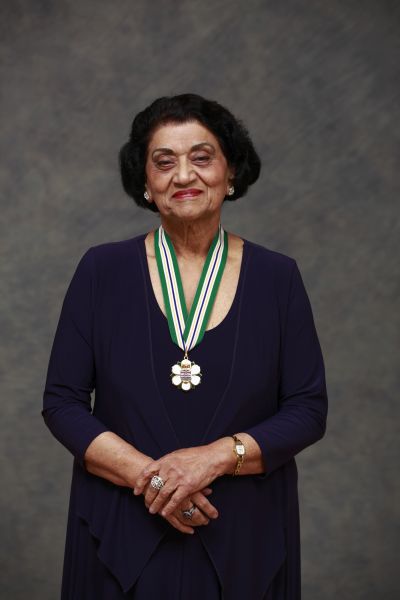
- Year: 2011
- City: Prince George
- Region: Cariboo
- Category: Community Leadership
Jack Shadbolt *
Jack Shadbolt has long been recognized as an artist of international stature but his work has always spoken with a West Coast accent. His images of our landscape transformed through his artistic vision have had a major influence on the development of Canadian painting. Indeed, Jack Shadbolt is widely regarded as the pre-eminent painter of Western Canada.
Jack Shadbolt gave us a truly prolific body of work which has been featured in over 60 solo exhibitions and major retrospectives. Public recognition in the form of honorary doctorates from the University of British Columbia, the University of Victoria and Simon Fraser University, and the Order of Canada, attest to his accomplishments. In 1989, on his 80th birthday, he was made Freeman of the City of Vancouver.
Jack Shadbolt was equally to be honoured for his contribution as a teacher. From 1938 to 1966 he was a profound influence on his pupils at the Vancouver School of Art where he was known as a spell-binding lecturer and inspiring teacher.
His role as a mentor of younger artists is well known and included the establishment of the Vancouver Institute for the Visual Arts. He was also prominent in support of the Children’s Arts Umbrella. His personal support and encouragement was to many young artists’ careers.
Poet, author, teacher and mentor: Jack Shadbolt.
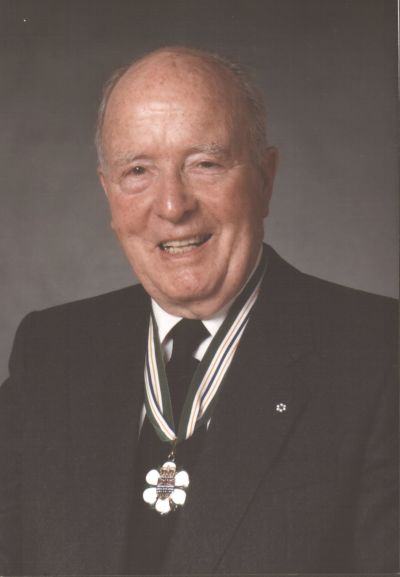
- Year: 1990
- City: Burnaby
- Region: Mainland/Southwest
- Category: Arts and Culture
Jim Shepard
Jim Shepard used his experiential knowledge of business to help grow British Columbia’s economy during his 50-year career with some of BC’s largest firms.
His career included serving as chair and CEO of Finning, president and CEO of Canfor, chair of the board of MacDonald Dettwiler, chair of OncoGenex Pharmaceuticals and chair of the Business Council of BC, Vice-Chair of the Conference Board of Canada, and Director of BC Rail Ltd.
Jim was founding chair of the 1998 Business Summit which drew 1,000 business leaders from throughout BC to rekindle the ‘can do’ spirit of free enterprise. Jim is also founding chair of the BC Business Laureates Hall of Fame Gala which has raised over $4.6 million over 10 years for the BC Junior Achievement.
He served as a big brother and a volunteer with the Vancouver Crisis Centre. He was founding president of the Williams Lake Racquet Club, fundraiser for the Sam Ketcham Memorial swimming pool, a bantam football coach, director of the St. Paul’s Hospital Foundation and director of the Vancouver Symphony Orchestra. He was chair of the Grantham’s Landing Wharf Association and fully funded construction of a new wharf for swimmers to enjoy.
Jim was awarded a Queen Elizabeth Golden Jubilee medal in 2002 for business and community leadership.
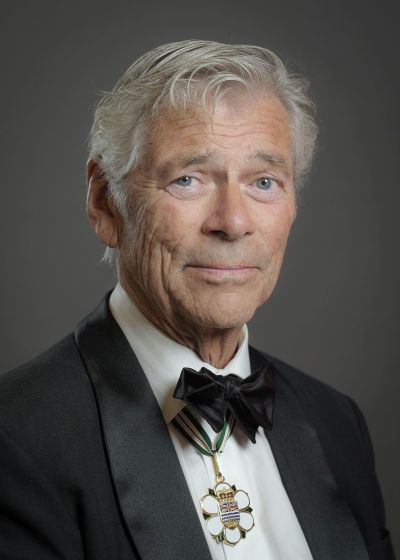
- Year: 2015
- City: Vancouver
- Region: Mainland/Southwest
- Category: Business
Kathy Shields
One of Canada’s greatest-ever basketball coaches, Kathy Shields has been a great teacher and competitor, and a role model for hundreds of young B.C. women.
Ms. Shields’ record as head coach of the University of Victoria Vikes women’s team is almost unbelievable – 320 wins versus only 50 losses in conference play over 23 years. She coached an unprecedented eight national championship teams, was named coach of the year three times, and won the 3M Coaching Award for Excellence.
In addition to her magnificent success at the University of Victoria, Ms. Shields served as assistant coach and head coach of Canada’s national women’s basketball team.
She is known for much more than her teams’ success on the court, as she has mentored hundreds of young British Columbians over the years. Eight of her former players and assistant coaches went on to be head coaches of university basketball teams, and many more are successful contributors to their communities, in part because of the excellent example of their mentor.
Ms. Shields is possibly the most highly respected coach in the history of Canadian women’s basketball. She has created a legacy through her contributions that will continue long into the future.
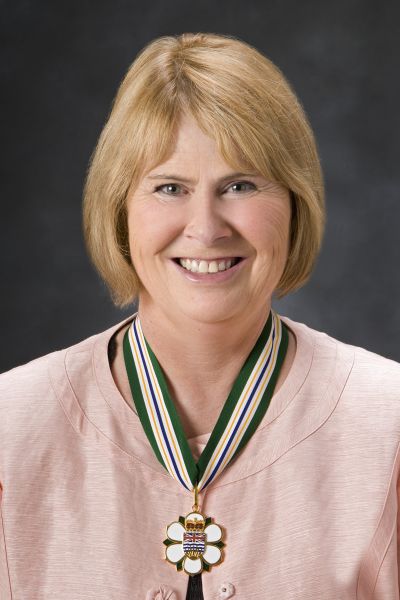
- Year: 2008
- City: Victoria
- Region: Vancouver Island/Coast
- Category: Sports and Recreation
Kenneth William Daniel Shields
The most successful coach in the history of Canadian university basketball, Ken Shields has dedicated his life to the development of Canada’s athletes and coaches. He has been a leader in the development and promotion of Canada’s premier athletic programs.
Mr. Shields coached the University of Victoria men’s basketball team from 1976 to 1989, leading them to seven consecutive national championships. During this period, he was awarded four Coach of the Year awards.
Renowned for his high standards and promotion of excellence, Mr. Shields instilled these values in hundreds of young men who he coached and led during his coaching career.
He went on to coach Canada’s national team and was instrumental in establishing the National Coaching Institute at the University of Victoria. He was also the founding president of the Commonwealth Centre for Sport Development now known as Pacific Sport Victoria.
Mr. Shields’ commitment and dedication to Canadian sport is legendary, and his drive and leadership have been invaluable in ensuring continued excellence in Canadian sports, and in promoting healthy living and fitness.
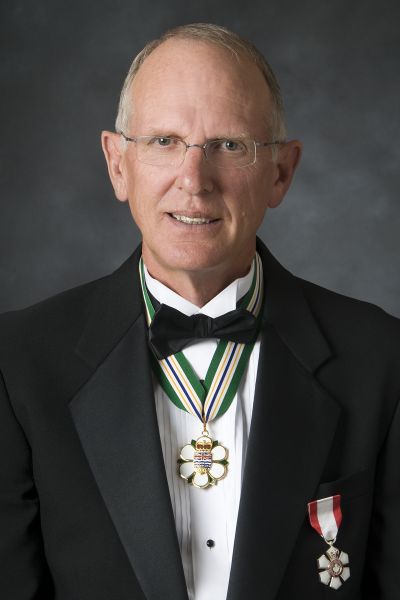
- Year: 2008
- City: Victoria
- Region: Vancouver Island/Coast
- Category: Sports and Recreation
Christine Sinclair
Christine Margaret Sinclair, born in Burnaby, is the captain of the Canadian women’s national soccer team; the highest scorer, male or female, in international games ever; a tireless advocate for soccer for girls and women in Canada; and a long-time worker in support of multiple sclerosis.
Sinclair made her debut in Canada’s senior national team at the age of 16 in the 2000 Algarve Cup and was immediately the leading scorer. To date, she has scored 188 goals for Canada over the past 21 years and was awarded the Best FIFA Special Award in January 2022, as the world all-time leading scorer. She has played in five World Cups and four Olympics, culminating in the 2020 Gold Medal for Canada. She has been shortlisted for FIFA Women’s World Player of the Year seven times, as well as Canadian Athlete of the Year and Canadian Female Athlete of the Year. She was inducted into Canada’s Walk of Fame in 2017 and appointed to the Order of Canada the same year.
She holds an honorary degree from Simon Fraser University and was awarded a Queen Elizabeth II Diamond Jubilee Medal in 2012. Sinclair is a leader, working with and for the people around her, whether she is captaining a team, working to aid in multiple sclerosis support and research, or for the development of women’s soccer in Canada.
She plays for a team in Portland, Ore., because there is no professional league in Canada, which is something she has been pushing for all her career.
Sinclair is an inspiration for soccer players of every age, from the smallest to the most advanced, a model for women and girls in all sports, and a steadfast worker for equality and equity at all times. Her life and achievements draw world attention to our province.

Year: 2022
City: Portland
Region: Out of Province
Category: Sports and Recreation
Mohini Singh
Over the course of her career as a radio and television journalist, Mohini Singh became widely known in the Okanagan from Osoyoos to Shuswap, and beyond.
Ms. Singh has consistently looked for opportunities to make a positive difference in the lives of the people of her region. Her journalistic work has consistently been to a high standard, showing integrity, dedication and a motivation to make the lives of people in her home region and elsewhere safer, more just and better.
As a community activist, Ms. Singh has participated in a wide range of activities, many involving helping those who are disadvantaged or building bridges within and between communities.
She has advocated for women and children who have experienced violence. She has promoted cultural tolerance and understanding. She has worked on issues as diverse as avalanche safety, spousal abuse, literacy, and the plight of orphans in India.
Even as her own struggle with multiple sclerosis became more challenging, Ms. Singh adopted a young child from India and dedicated her efforts as an artist in clay to local charities and foundations.
Through these community endeavours and many others, Ms. Singh has a long-standing history of leadership in volunteer service, professional excellence, arts and culture, and social tolerance and inclusion.
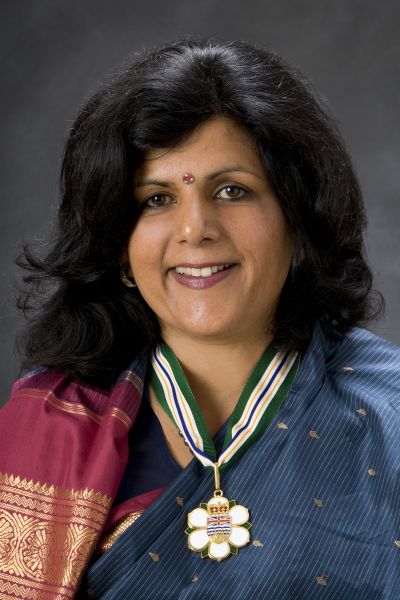
- Year: 2008
- City: Kelowna
- Region: Thompson/Okanagan
- Category: Communications
Arthur * and Herbert Skidmore *
Arthur Skidmore and Herbert Skidmore epitomized those entrepreneurial and personal leadership qualities on which business success stories are built. Fifty years ago they had a vision, and with hard work and determination, today that vision has been realized.
Working together, the two brothers built an international empire from a single automotive replacement glass location in New Westminster. Today TCG International employs more than 3,500 people doing business in automotive replacement glass and related products and communications products and services. The empire encompasses approximately 2,500 franchise owners across Canada, the United States and in close to 50 countries around the world.
Even with this tremendous success in the international business arena, the base of their empire remains here in British Columbia where it began.
Arthur Skidmore, while demonstrating a keen sense for business and a drive to succeed, never lost sight of the importance of family, children, religion and friendship. He dedicated his life to the betterment of others, donating both his time and money to organizations and educational institutions around the province.
Herbert Skidmore was known to shun the spotlight, preferring to help and support others in his own way. In 1994 he led a two-week trip to Albania, arranging for a shipment of glass, to replace the broken windows in children’s hospitals and orphanages. He took the time to provide necessary training in glass installation for local people. After that trip, he arranged additional glass shipments so that facilities for children can be rebuilt in that country.
Both Arthur and Herbert Skidmore were very generous to their adopted province through bursaries for undergraduate students and scholarships for graduate students in educational institutions around B.C.
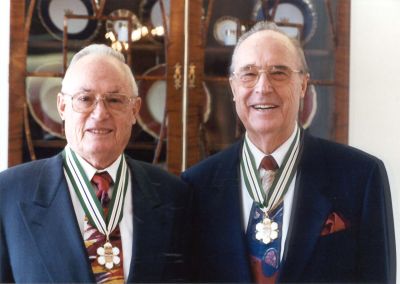
- Year: 1995
- City: Burnaby
- Region: Mainland/Southwest
- Category: Business
Brian Smith
Brian Smith has served the public in elected roles at the provincial and municipal levels, and has led significant social innovations in the arenas of sports, education, law and business.
As mayor of Oak Bay, Brian was instrumental in the development of affordable housing for seniors and low income families and was a driving force behind a new recreation centre and the establishment of the first public indoor tennis centre in Canada. He served on the board of Tennis Canada and used his leadership skills to move the sport forward both locally and nationally.
Early in his law career he established the first legal aid office in Victoria and later, as BC’s attorney general, he supported victims’ rights at the local level. He worked to establish the International Commercial Arbitration Centre and helped shape the repatriation of Canada’s Constitution.
First Nations relationships have been fostered through his legal, business and community service. As chair of BC Hydro, Brian worked to create partnerships. As chair of CN, he hired a First Nations leader to improve relations in BC and advocated for greater charitable contributions from the company. He currently serves as Chief Treaty Negotiator for the federal government in the Kootenays.
Brian was awarded the Queen’s Commemorative Medal for public service in 1992.
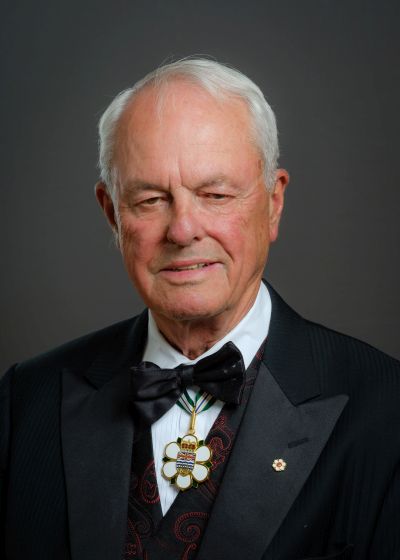
- Year: 2016
- City: Victoria
- Region: Vancouver Island/Coast
- Category: Community Leadership
Ernest Alvia (Smokey) Smith *
E. A. (Smokey) Smith was born in New Westminster in 1914 and served with the Seaforth Highlanders of Canada during the Second World War. Smith was awarded the Victoria Cross for exceptional bravery shown in Italy at the Savio River in 1944. After the war he returned to New Westminster. At the outbreak of the Korean War he re-enlisted in the permanent force, from which he retired in 1964. After returning home from the Korean War, he established the Smith Travel Agency in Vancouver. In 1995, Smith was appointed to the Order of Canada.
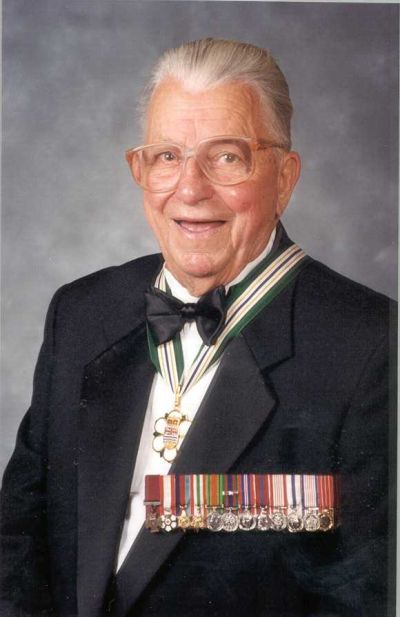
- Year: 2002
- City: Vancouver
- Region: Mainland/Southwest
- Category: Other
Gordon A. Smith *
Ever since attending the Winnipeg School of Art in the 1930s, Gordon Smith lived his life for the Arts. His creativity enriched all, not only through his artistic contributions, but also through his mentoring and generousity to others.
He contributed to British Columbia’s cultural life for more than 50 years and is recognized as one of Canada’s most creative talents. His work has been exhibited throughout the world in private and public galleries and can be found in museums and private and corporate collections across the country.
He is renowned for his support of and inspiration to young artists, encouraging them to pursue their goals. He was a founding patron of the Artists For Kids Foundation which has been providing permanent support for the fine arts to schoolchildren since 1989. He taught at the old Vancouver School of Art and the University of British Columbia which made Gordon Smith Professor Emeritus, Fine Arts in 1982. He donated his time and works to numerous charity auctions and fundraising events.
He was awarded the Order of Canada, and honourary Doctorates from Simon Fraser University and the Emily Carr Institute of Art and Design. He was tireless in his determination to see that the arts and culture thrive in British Columbia.
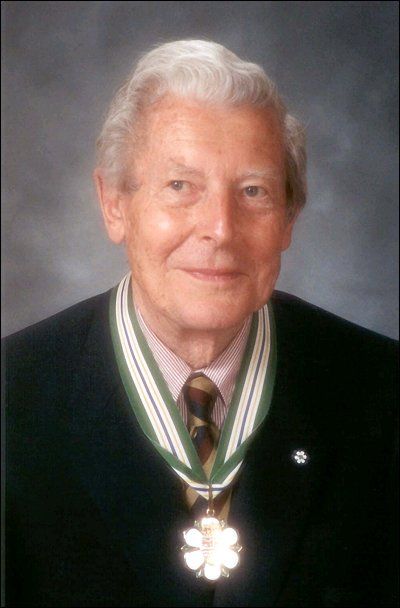
- Year: 2000
- City: West Vancouver
- Region: Mainland/Southwest
- Category: Arts and Culture
Michael Smith *
Nobel Prize winner Michael Smith was a professor of Biochemistry at the University of British Columbia and director of UBC’s Biotechnology Laboratory. Born and educated in England, he was with UBC since 1966.
Michael Smith served as scientific leader of the UBC-based Protein Engineering Network Centre of Excellence, part of the federal program created to encourage scientific research. The genetic process he pioneered has opened doors for researchers in laboratories around the world, leading to discoveries in a whole range of initiatives. His techniques are being used to help wage molecular warfare on cancer cells, to try to create faster-growing crops and to engineer synthetic blood products.
Despite his impressive achievements, his admirers note that he was open, approachable and generous with his time, talent and knowledge. He believed scientists have a responsibility to explain what they’re doing and why it matters, in terms we can all understand.
Michael Smith put his $500,000 Nobel prize money into an endowment fund for outreach programs to boost awareness of science and for research into schizophrenia.
Through his life’s work Michael Smith distinguished both himself and B.C.’s science and technology community.
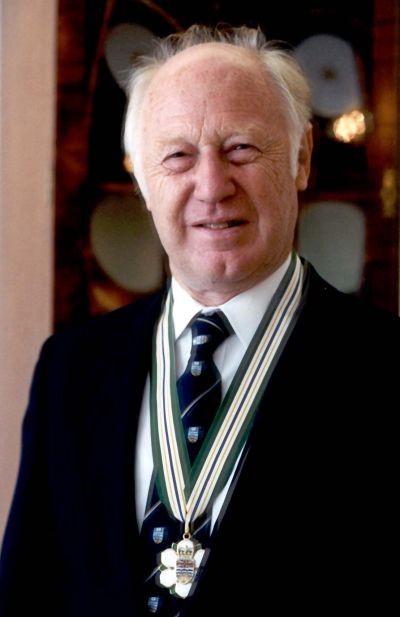
- Year: 1994
- City: Vancouver
- Region: Mainland/Southwest
- Category: Science and Technology
Tricia Smith
Ms. Tricia Smith is a role model for B.C. women, having successfully pursued her passion to become a successful elite athlete, an international sport and sport-law administrator as well as a dedicated volunteer.
Ms. Smith excelled at rowing, and was a member of four Olympic teams, winning a gold medal at the 1986 Commonwealth Games, silver at the 1984 Olympics and seven world championship medals.
She is currently a member of the International Council of Arbitration for Sport, senior Vice President of the Canadian Olympic Committee, a member of the Executive Committee of the International Rowing Federation and was a founding member of the B.C. Advisory Council on Drugs and Sport. She was the first female board chair of Sport B.C. and served as co-Mayor of Vancouver’s Olympic Village.
Ms. Smith was selected as Canada’s Chef de Mission for the 2007 Pan American Games, and among other awards has received the President’s Award from Rowing Canada and was inducted into the BC Sports Hall of Fame and the Canadian Olympic Hall of Fame. She received the Order of Canada in November 2011.
Called to the Bar in 1986, Ms. Smith is now a partner and Deputy Managing Director at Barnes Craig & Associates, an adjusting and risk management firm.
Ms. Smith has faced considerable family tragedy but always credits her family and upbringing for her strength, perseverance and positive approach in sport, education and all she does in life.
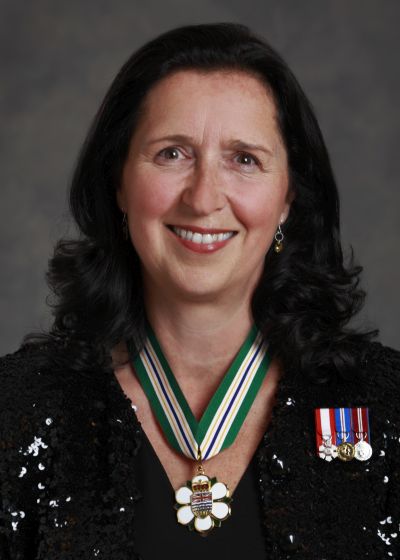
- Year: 2012
- City: Vancouver
- Region: Mainland/Southwest
- Category: Sports and Recreation
Dr. Poul Sorensen
Dr. Poul Sorensen, a professor of pathology at the University of British Columbia, has dedicated his career to understanding the biologic underpinnings of childhood cancers. His B.C. Cancer Research Agency lab uses a combination of genetic and biochemical approaches to identify proteins or pathways altered in human tumours, starting with childhood cancers. His internationally recognized work has resulted in the discovery of many different genetic alterations in human cancers, most notably a novel type of genomic alteration called an NTRK gene fusion, that causes diverse types of childhood cancer, breast tumours, and other human malignancies including colorectal, lung, thyroid, and brain cancers.
His discovery of NTRK fusions led to the development of new treatments for patients whose cancer is caused by this genomic alteration. One such treatment, larotrectinib, is the first drug to be simultaneously studied and approved for both pediatric and adult cancers by the U.S. Food and Drug Administration (FDA) on Nov. 26, 2018. On July 10, 2019, larotrectinib was approved by Health Canada with the brand name VITRAKVI as a tumour agnostic treatment that can be used to treat more than 24 forms of cancer with this genomic alteration, including rare pediatric cancers. Tumour agnostic treatments can be used to treat cancers that have a specific genomic alteration, regardless of where in the body the tumour is located or what the tumour looks like
under the microscope.
VITRAKVI, a Bayer product, has already had a positive impact on Canadian patients. One such patient, now 10, had a dramatic positive response. At five years old, he was diagnosed with stage 4 thyroid cancer and after three long years, the available treatments were not working. Once it was determined that the boy had the rare genomic alteration that was discovered by Sorensen, he was given VITRAKVI as part of a clinical trial and the child’s condition improved substantially.
This child’s improvement is not a singular occurrence. A large body of work validating the clinical efficacy and safety of VITRAVKI in clinical studies has been reported. In clinical trials, 79% of VITRAKVI-treated patients who had this type of genomic alteration had a decrease in their tumour size. In pediatric patients, 90 per cent had a decrease in their tumour size, and 23 per cent of them had a complete response resulting in no further evidence of the cancer. For many of these young patients, the only other option was amputation or disfiguring surgery. It is Dr. Sorensen’s breakthrough research 20 years earlier that paved the way to help understand this form of cancer and subsequently allowed other researchers to develop new targeted treatments such as VITRAKVI.
Sorensen has already received numerous prestigious awards, including:
- 2021 American Association for Cancer Research Team Science Award
- 2021 Aubrey J Tingle Prize from the Michael Smith Foundation for Health Research for outstanding clinical research in B.C.
- 2019 Bloom Burton Award, recognizing the greatest contributors to Canada’s innovative health industry
- 2019 Fellow of the Royal Society of Canada for outstanding contributions in life sciences research
- 2016 Canadian Cancer Society’s Robert L. Noble Prize for basic cancer research
- 2016 August-Wilhelm Scheer Gastprofessorship Prize from Technical University Munich.
It is the mother of the boy with thyroid cancer who best describes the impact of Sorensen's work. As she stated in a Sept 29, 2019 CBC article, “You have given us the greatest gift. Every new day that we get to spend together as a family, making more memories, it's because of you and your research."
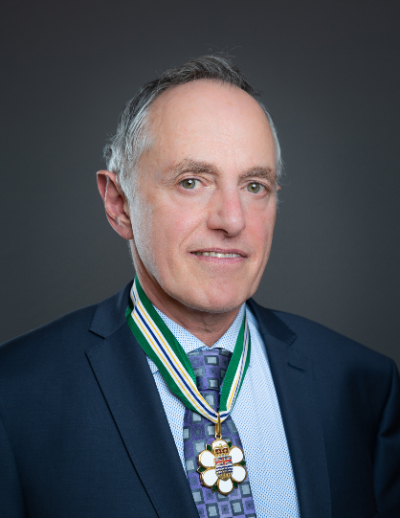
- Year: 2021
- City: Vancouver
- Region: Mainland/Southwest
- Category: Science and Technology
James Spencer *
Over many years, James “Jimmie” Spencer was a driving force in fostering, strengthening and maturing winter sports in British Columbia. His efforts helped build B.C.’s ski industry into a well coordinated, economically important sector with a strong international reputation.
Under the leadership of Mr. Spencer, the Canada West Ski Areas Association played a significant role in this development. The association – which he led for 28 years – now stretches from B.C. to Manitoba.
Due largely to Mr. Spencer’s knowledge and experience in this sector, ski areas have been organized to work together in order to develop sustainability. He was an advocate for small ski and recreational areas and encouraged larger ski areas to assist smaller ones. He was instrumental in the development of industry-wide leadership and management programs, a code of ethics, and national safety and operational standards.
Mr. Spencer played a critical role in the support of Selkirk College’s Ski Resort Operations and Management Programs, and was involved with the development of the HeliCat Canada group of heli-skiing and cat-skiing operators.
Mr. Spencer worked closely with governments as the industry’s representative in negotiations for Crown lands acquired under B.C.’s Commercial Alpine Ski Policy. He was also closely involved with coordinating safety standards with governments.
Mr. Spencer contributed hugely toward making British Columbia’s ski industry a world leader, and in the process gained widespread respect as a leader, mentor, and advocate for skiing in B.C.
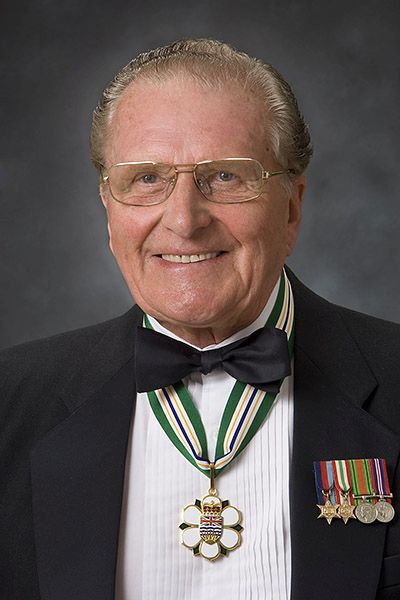
- Year: 2007
- City: Vernon
- Region: Thompson/Okanagan
- Category: Business
A.J. (Jim) Spilsbury *
When we talk about British Columbia’s pioneers we usually refer to people who lived many years ago. People involved in opening lines of transportation and communication, where none existed before.
This is a young province, and we are fortunate to have had with us a modern-day pioneer, Jim Spilsbury. The radios he built opened communication lifelines all along the B.C. coast. The airline he founded, Queen Charlotte Airlines, became Canada’s third largest in 1949.
Jim Spilsbury was also a writer whose best-selling tales of life on the coast have delighted his readers, whose photographs have documented our way of life, and whose paintings have captured the beauty of the B.C. coast.
Any one of these accomplishments would have made Jim Spilsbury a remarkable man. That they are all the work of one individual is truly unique.
Born in England in 1905, he lived in B.C. since 1907. While selling his primitive crystal radio sets by boat and later by airplane, and while providing air transportation to coastal villages, native communities and logging camps, Jim Spilsbury became a much-welcomed person everywhere along our coast because his work improved its quality of life.
After semi-retirement, Jim Spilsbury continued to pursue his great love of writing, painting and photography.
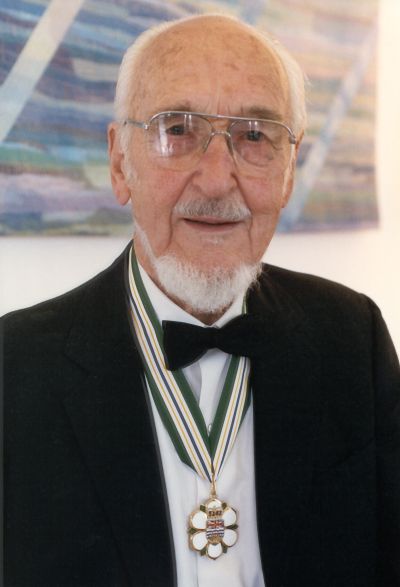
- Year: 1993
- City: West Vancouver
- Region: Mainland/Southwest
- Category: Communications
Dr. Paul Spong
Paul Spong’s pioneering efforts and decades of research, advocacy, vision and leadership have had a profound impact, locally and worldwide, in expanding understanding of orcas and changing how orcas are perceived and treated.
His involvement with orcas began as a scientific quest for knowledge, leading to a crusade to save whales from captivity and extinction, and the intertwined threads of Spong’s life work are recognized throughout the world.
In 1967, Spong, with a doctorate from the University of California, Los Angeles, was jointly appointed an assistant professor at the University of British Columbia to undertake brain research and to work with Skana, a captive orca at the Vancouver Aquarium, on behavioural research (a first). After two years, he concluded that concrete tanks deprive cetaceans of vital acoustic and social needs. Regarding this as unfair, he courageously and publicly advocated that Skana be returned to her family. Spong then left the aquarium to become a pioneer in wild orca research.
In 1970, he founded OrcaLab, a land-based not-for-profit research facility on remote Hanson Island off northern Vancouver Island. OrcaLab is the world’s longest-running wild orca project, where the most extensive research on northern resident orcas has been carried out. The area has since been designated critical habitat.
OrcaLab was founded on the premise that it is possible to study whales in the wild without interfering with their lives. Carved out of the wilderness, OrcaLab developed into a permanent, year-round research facility. For decades, OrcaLab has collected, catalogued, transcribed and deciphered whale modulations and songs using a network of remote hydrophones over 50 square kilometres of ocean. These recordings now form an archive (“Orchive”) at the University of Victoria. Constant monitoring since 1983, assisted by more than 200 mentored international students documenting orca lives, has enabled OrcaLab to obtain sound profiles of each pod’s distinctive dialect vocalizations.
In 2000, OrcaLab installed remote video cameras to transmit livestream footage around the world via the internet as a public education service, attracting an audience in more than 70 countries. Linking the underwater video network to the acoustic network was a breakthrough in the study of whales in the wild.
The 1970s witnessed the rise of a global anti-commercial whaling movement. Spong was actively at the forefront, travelling the world and working tirelessly to end commercial whaling. He inspired Greenpeace’s Save the Whales campaign, transforming the organization from an anti- nuclear protest group to a true environmental movement.
Since 1975, he has been an observer at the International Whaling Commission (IWC), reporting to a worldwide audience. Victory came in 1986 with the IWC’s imposition of a moratorium on commercial whaling – a moratorium that still stands, saving several great whale species.
On other activism fronts, in the 1970s, while living in a little squatters’ community, Spong led a campaign to prevent North Vancouver’s Maplewood Mudflats from being developed as a shopping centre. Today, it is a conservation area and wildlife preserve.
During the 1980s and 1990s, Spong, with his wife Helena Symonds and allies, including the ‘Namgis First Nation, headed off multiple attempts to log the forest of Hanson Island (Yukusam). Today, it is the southernmost part of the Great Bear Rainforest and protected under the stewardship of First Nations through the Yukusam Heritage Society.
In recognition of his work to protect orcas, Spong was given the name Max’inux (Kwakwaka’wakw for orca) in a potlatch ceremony in the Alert Bay Big House.
One of Spong’s continuing passions has been returning captive orcas to their home waters. In 2002, the orphan orca Springer became the first whale to be successfully reintegrated with her family after human intervention. OrcaLab monitored her passing family’s calls and Springer’s enthusiastic response, which crystallized decades of Spong ’s work on the vocal behaviour and social structure of the region’s orcas. To this day, Spong continues to work for the release of A5 pod member Corky (A16) from captivity and is helping to prepare a “retirement home” for her in a bay near OrcaLab.
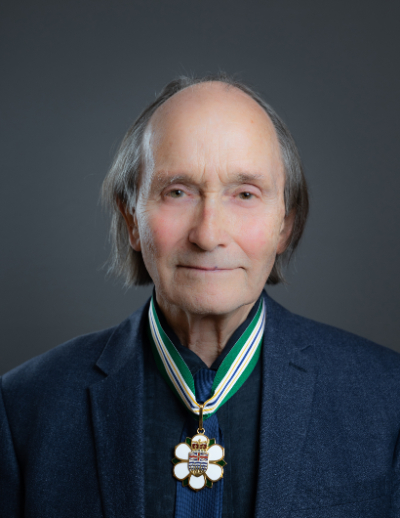
Year: 2022
City: Alert Bay
Region: Vancouver Island/Coast
Category: Environmental/Conservation
Honourable Gerald St. Germain
Gerry St. Germain is an unbelievable B.C. success story who has constantly shattered stereotypes of his people and been the first at many levels. As a Royal Canadian Air Force pilot, Vancouver Police Department officer, chair of the B.C. Chicken Farmer’s marketing board, federal cabinet minister and senator, he has done it all and with great success. St. Germain has never forgotten his Métis roots and knew he was representing all people when he worked to make many rights from wrongs for all.
The son of a Métis trapper with zero wealth and no social status, St. Germain was born poor, with his family having no running water or electricity, and his life (due to the racist attitudes of the day) was not expected to be extraordinary. But St. Germain knew early on that he would be special. It was his love of mathematics and science that allowed him to escape the horror of residential schools and get a scholarship to a special school. It was education that allowed him to rise to the highest levels of government in Canada. His leadership and life experiences have led to significant changes for Indigenous Peoples and all British Columbians.
In 1983, he was elected as a federal Member of Parliament, served as the minister of transportation and the minister of forestry, and became the first self-identified Métis person to serve in Canada’s federal cabinet. During his tenure, St. Germain was a leading voice in moving management of airports in B.C. from Transport Canada to local regional communities. He helped establish TRIUMF at the University of British Columbia, which is Canada’s premier physics laboratory. He championed the environment conservation of the Haida Gwaii National Park Reserve. He worked closely with former prime minister Brian Mulroney in the creation of the North American Free Trade Agreement (NAFTA) and worked tirelessly to defend human rights and introduce anti-apartheid policy, which was one of the proponents that led to the release of Nelson Mandela.
St. Germain was appointed to the Canadian Senate in 1993 and served until 2012. He was the chair of the Senate’s Standing Committee on Indigenous Peoples, where he introduced legislation on self-government and issued many reports on resolving land claims, assisting Indigenous businesses with economic development, band elections, heritage sites and safe drinking water in Indigenous communities. A strong advocate of education from his mathematics days, he was instrumental in achieving a formal residential school apology from the Government of Canada to open the future for Indigenous youth. For his dedicated advocacy, St. Germain received the Indspire Lifetime Achievement Award in 2012.
Throughout his life, St. Germain has exhibited all the traits of a true leader, not only on behalf of Indigenous Peoples, but on behalf of a stronger B.C. and better Canada.
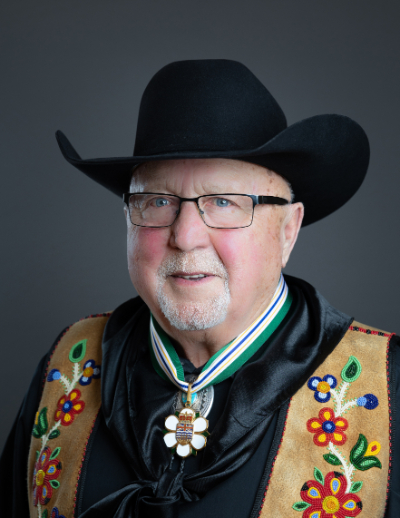
Year: 2022
City: Langley
Region: Mainland/Southwest
Category: Indigenous Reconciliation
Dr. Richard Stace-Smith *
Dr. Richard Stace-Smith was a scientist, internationally recognized for his work in viruses causing disease in plants. During his 40-year career as a research scientist with Agriculture Canada, his findings were important to British Columbia’s agricultural industries and also in the wider fields of medicine and human health. He demonstrated community leadership in the protection of biodiversity and the conservation of the environment, particularly the protection and preservation of wildlife and the essential habitat upon which they depend.
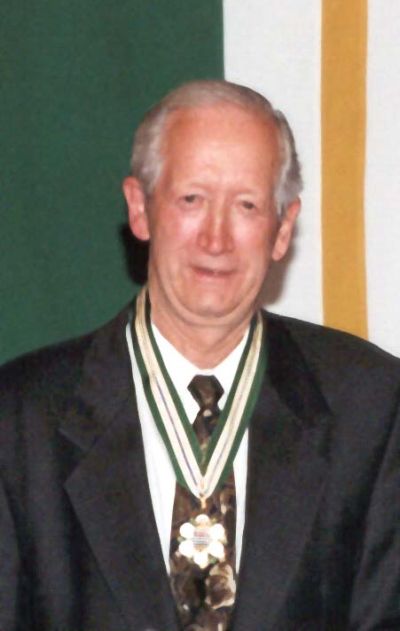
- Year: 1999
- City: Vancouver
- Region: Mainland/Southwest
- Category: Science and Technology
Arran and Ratana Stephens
Arran and Ratana Stephens are the co-founders and co-owners of Nature’s Path, a family owned and operated enterprise based in Richmond and one of the world’s leaders in organic food manufacturing and distributing companies.
They began with a modest restaurant that was started with Arran’s $7 and a $1,500 loan. Today their business, built on the philosophy of ethical business practice, sustainability, altruism and employing 650 people, sells products in 50 countries.
Nature’s Path’s success has been widely recognized and the company has received numerous accolades including being named B.C.’s Top Employer by the Vancouver Sun (2010 to 2016 inclusive), Canada’s Marketing Hall of Legends Award (2021), Drishti Media Group: Lifetime Achievement Award (Ratana - Nov. 1, 2020), Canada’s Top Employer by the Globe and Mail (2014-17 inclusive), Canada’s Best 100 Employer’s by Maclean’s Magazine (2004-06 inclusive}, Financial Post’s 10 Best Companies to Work For (2014, 2015) and recipient of the Business Excellence Award (leadership category) by the Richmond Chamber of Commerce in 2015. They were inducted into the Business Laureates of British Columbia Hall of Fame in 2020.
The couple has served B.C. by working with many institutions, charities and non-governmental organizations. Between personal donations and the charitable contributions of their company, they have donated over $40 million to support worthy causes in B.C., the rest of Canada and internationally. Many institutions have benefited from their philanthropy including the University of British Columbia, University of Victoria, Vancouver General Hospital, B.C. Children’s Hospital, and Greater Vancouver Foodbank. Their philanthropy has been recognized by the Association of Fundraising Professionals which bestowed on them the Giving Heart award in
2016.
Arran was the recipient of the Ernst and Young manufacturing and distribution award; Ernst and Young entrepreneur of the year manufacturing and distribution award; Leadership award from B.C. Food Science and Technology; sustainability award from the B.C. Food Manufacturer’s Association; and he was inducted into the Canadian Health Food Association’s Organic Hall of Fame.
Ratana has received the YWCA Woman of Distinction award; RBC Mehfi Award; and PIRS 35th Anniversary Bright Light’s Award. She’s been named one of Canada’s 10 Most Powerful Women by the Women’s Executive Network, B.C. Business magazine’s 50 Most Influential Women, and Profit/Chatelaine magazines’ WI00: Canada’s Top Women Entrepreneurs.
As a team, Arran and Ratana were inducted into the New Hope Hall of Legend, the Growing Organic Award by the Organic Trade Association, and the Leadership Award for character and vision from the Leadership Institute.
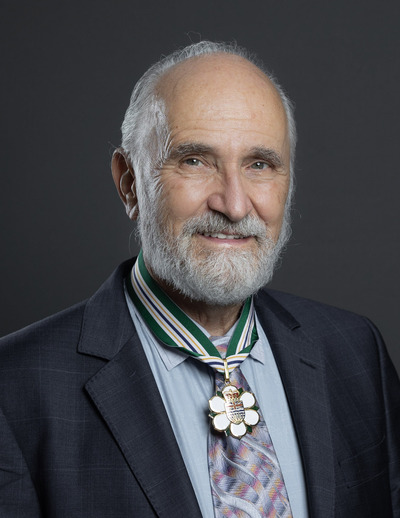
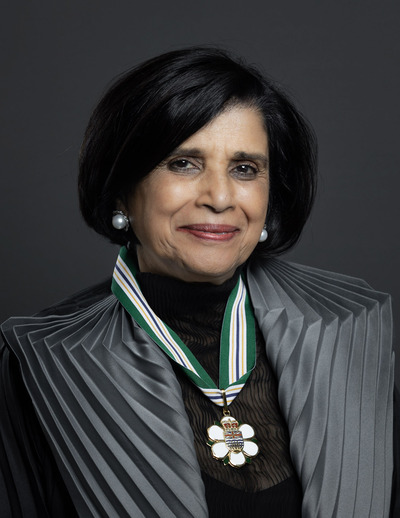
- Year: 2021
- City: Vancouver
- Region: Mainland/Southwest
- Category: Business
Neil Sterritt *
Neil Sterritt made major contributions to British Columbia and to First Nations over many years, working tirelessly and selflessly both to strengthen his people’s proven ability to embrace opportunities while holding onto traditional values. He brought all British Columbians together on the common ground of hope and possibility.
Born in Gitxsan territory, Mr. Sterritt left the northwest as a young man to study and work in the minerals exploration industry throughout Canada, overseas and in the USA. He returned in the early 1970s as manager of the ‘Ksan Historic Village and Museum, and served as president of the Gitxsan-Wet’suwet’en Tribal Council. While president, he was involved on behalf of his people in the National Aboriginal Constitutional Conferences during the 1980s and the Charlottetown Constitutional Conference in the early 1990s.
Mr. Sterritt served as Director of Land Claims and Self-government with the Assembly of First Nations in Ottawa. He worked with more than 100 elders in identifying and mapping the traditional Gitxsan territories, an effort that was the basis of the court action that became known as the Delgamuukw case.
For many years, Mr. Sterritt led governance workshops aimed at assisting Aboriginal communities make the difficult transition from paternalism to self-reliance. In this work with most of the B.C. and Yukon First Nations, he explained legal and fiduciary responsibilities in the context of First Nations’ culture and traditions.
A leader in land claims and other First Nations issues over many years, Mr. Sterritt was well known outside of Canada, having been invited to lecture, advise and tour aboriginal communities in Australia, East Malaysia, New Zealand, Norway, Thailand and the United States.
Mr. Sterritt was awarded the BC Book Prizes Roderick Haig-Brown Award for his book Mapping My Way Home: A Gitxsan History and an honorary doctorate of laws from the University of Victoria.
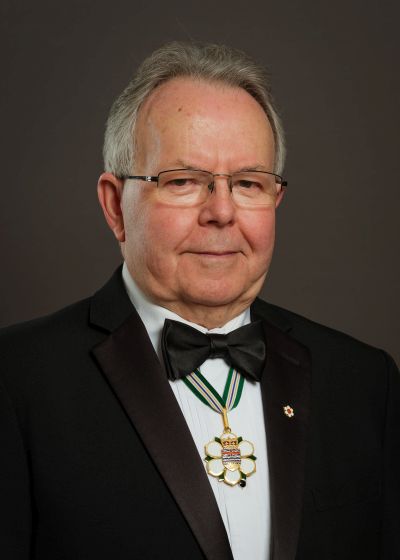
- Year: 2017
- City: 150 Mile House
- Region: Cariboo
- Category: Community Leadership
Marvin Storrow
Apart from his extraordinary achievements at the Supreme Court of Canada, Marvin Storrow is a senior litigation partner practicing a diverse realm of law. An ardent author and speaker, he contributes greatly to the knowledge of a wide range of legal matters and concerns.
He served or serves 23 professional associations provincially, nationally and internationally. A lifetime supporter of Legal Aid, early in Storrow's career a chairman of the Legal Aid Society said he completed one out of every seven legal aid cases in B.C.
A community leader, Storrow continues to volunteer and offer services pro bono. He and his family support educational endowments for First Nations people and other learners at several post-secondary institutions.
His 15 awards include: the Milvain Award to a leading Canadian barrister; Goyer Award for exceptional contributions to law in B.C.; four lifetime achievement awards; and five honorary degrees.
Storrow's milestone cases and judgments remain highly studied and quoted foundational references for constitutional protection to Aboriginal rights. Sparrow (1990) was the first case to consider the scope of protection accorded to Aboriginal rights under the Constitution Act, 1982. Guerin (1984) influenced both Aboriginal and fiduciary law. The late chief justice Lance Finch of the B.C. Court of Appeal said, “It is difficult more than 20 years after the event to comprehend the ability, tenacity, courage and conviction necessary to take this case from an initial, casual conversation with Chief Delbert Guerin, all the way to the Supreme Court of Canada and ultimate success. Marvin has all those qualities and more. It is of such lawyers, that our legal
history is made.”
Delgamuukw (1997) was the first Supreme Court of Canada case to confirm the nature and scope of Aboriginal title rights in Canada. Thomas Woods, one of the 40 panellists wrote that Storrow's successes in this area “fundamentally altered the legal and political landscape in Canada.”
Anna Fung, a past president of the Law Society of BC believes Storrow's accomplishments contributed to a wider push to recognize Indigenous rights and title across Canada. “It would be fair to say that the work of the Truth and Reconciliation Commission was made possible at least in part due to the ground-breaking achievement that Storrow accomplished in gaining legal acceptance of Aboriginal rights and title in Canada over the past several decades.”
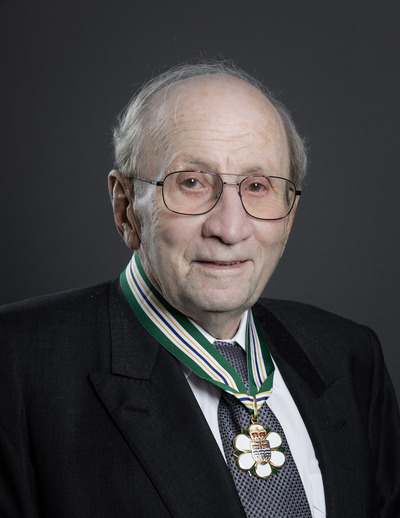
- Year: 2021
- City: Vancouver
- Region: Mainland/Southwest
- Category: Indigenous Reconciliation
Dorothy Isabelle Stubbs *
Isabelle Stubbs was the Comox Valley’s resident folk historian and an enthusiastic supporter of many community organizations.
Often described as the “voice, mind and hands of the community,” she was an expert on local history and the people who settled and developed the Comox Valley. Her book “All About Us” is a history widely used as a reference when historical information is being sought. If anyone was looking for information on a person, where a certain building used to be located, or who lived there, Isabelle Stubbs was one of the first people contacted and was seldom without an answer. She offered her pearls of knowledge with a sparkling and ready wit that would be the envy of people half her age.
For 53 years, our recipient wrote a local newspaper column called “Coffee Cup Chatter”. This widely-read column incorporated historical information and amusing anecdotes as well as current information on local issues, people, places and activities. It is said that in all those years, Mrs. Stubbs never once missed the weekly deadline for submitting her column.
In 1993, Isabelle Stubbs was given the City of Courtenay’s highest honour, Freeman of the City. She showed outstanding caring and dedication to the community.
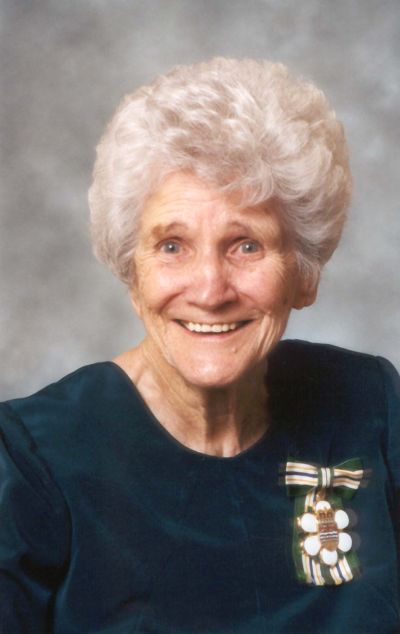
- Year: 1996
- City: Courtenay
- Region: Vancouver Island/Coast
- Category: Community Leadership
Sarah-Spring Stump *
Sarah-Spring Stump didn’t just talk about her philosophy of life, she lived it. She began taking in the people who needed support: the homeless, parolees, alcoholics and drug offenders. Without any government funding, when her apartment couldn’t hold any more, she began Abraham’s Lodge, a shelter for the forgotten in society who have nowhere else to turn. She and her husband worked seven days a week, because in her words, “everyone is equal and deserves a chance at shelter, food, clothing and to receive love.”
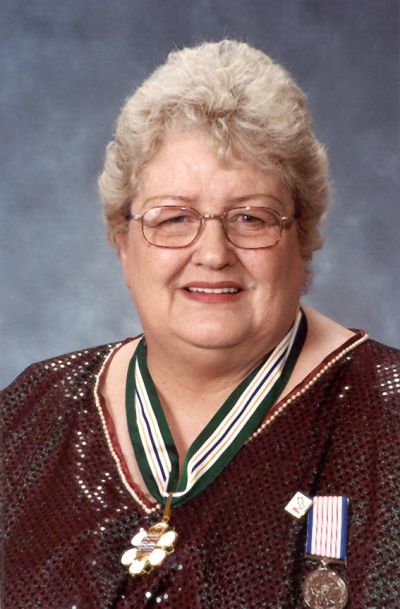
- Year: 2001
- City: Williams Lake
- Region: Cariboo
- Category: Community Leadership
Martha Sturdy
Martha Sturdy is a pioneering Canadian artist whose six-decade career has made a lasting impact on the global creative landscape. A 1978 graduate of the Vancouver School of Art, now Emily Carr University of Art + Design (ECUAD), she first gained international acclaim for her bold, wearable sculptures featured in Vogue and on major fashion runways.
Her practice spans large-scale sculpture created in resin, steel, brass, aluminum and salvaged cedar, and has been showcased in leading publications worldwide. Despite global success, she remained rooted in B.C., mentoring artists and supporting her community.
Her accolades include the Queen Elizabeth II Golden Jubilee Medal, induction into the Royal Canadian Academy of Arts and an honorary doctorate from ECUAD. A dedicated philanthropist, she has served on boards such as the Audain Art Museum and committees such as the Vancouver Chinatown Foundation.
Now in her early 80s, she continues to create monumental works inspired by the West Coast, exemplifying a lifelong devotion to creativity, community and the natural environment.
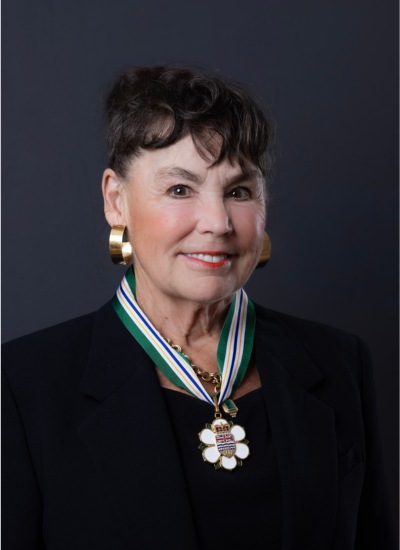
- Year: 2025
- City: West Vancouver
- Region:
Mainland/Southwest - Category: Arts and Culture
Dr. David Suzuki
As a popular science educator, David Suzuki has become a household name in Canada and much of North American. As a scientist, he has placed the preservation of the environment for future generations as the world’s top priority.
Through his popular television series “The Nature of Things”, the CBS radio series “Quirks and Quarks”, as well as his numerous books, Dr. Suzuki has brought the concept of living within the planet’s productive capacity for a sustainable future into our homes and our consciousness.
His efforts have been rewarded with the ACTRA Award in 1985 and GEMINI Awards in 1986 and 1992 for his television programs. Other honours include the Governor General’s Award for Conservation 1985 and the Order of Canada in 1997.
Born in Vancouver in 1936, like many Japanese-Canadian of his generation, he spent some of the formative years of his life in an internment camp. At the end of the Word War II, with only what they could carry in suitcases, his family was forced to begin a new life in Ontario.
Now, through The David Suzuki Foundation, with the help of a growing cadre of dedicated volunteers, he is working toward bringing to local communities the strategies they need to forestall global environmental degradation and collapse. In the process, David Suzuki has made us realize, many of us for the first time, that the fate of our planet rests in our hands — as individuals and as citizens of the planet.
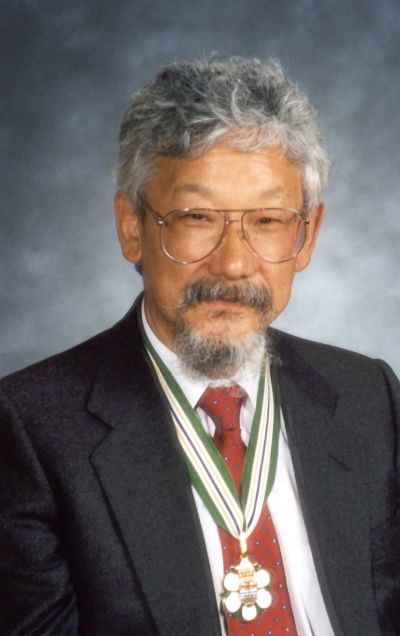
- Year: 1995
- City: Vancouver
- Region:
Mainland/Southwest - Category: Science and Technology
Erwin Swangard *
Erwin Swangard was born in Germany and emigrated to Canada in 1930. By profession he was one of Canada’s best known and most widely travelled journalists.
Early in his career as a freelance sports reporter, he returned to Germany to cover the 1936 Olympic Games for the Vancouver Sun and the Toronto Globe. He was foreign editor for the Vancouver Province for a five year period and during a seven-year span with the Vancouver Sun, beginning in 1951, Erwin Swangard served as Sports, City, Assistant Managing, and Night Editor until his appointment as Managing Editor in March, 1959.
One of his enduring achievements was his founding of the Tournament of Soccer Champions, a championship gala involving juvenile soccer. The tournament became a phenomenal stimulant to the game in British Columbia. It has grown from about 1,000 boys playing on 70 teams to 33,000 boys and girls on 2,500 teams.
Erwin Swangard was always a staunch supporter of athletic endeavours in British Columbia and nationally, including the British Empire and Commonwealth Games in Vancouver in 1954, the first ever Grey Cup Final held outside Toronto in 1955 and as one of the seven founders of the B.C. Lions Football Club. He raised almost $1 million to build an athletic stadium in Burnaby’s Central Park which on its opening in the spring of 1969 was named Swangard Stadium.
He was appointed a Director of the Pacific National Exhibition in October, 1976, was elected its President in January 1977, positions which he held for some 13 consecutive years.
During that time, he turned the PNE from a simple agricultural fair into one based on a variety of themes and with an international dimension. It is now one of the foremost annual exhibitions in the country.
His service with a variety of community organizations and as a Rotarian earned him the prestigious Paul Harris Fellowship Award in 1987. In January, 1989, he was made a Member of the Order of Canada.
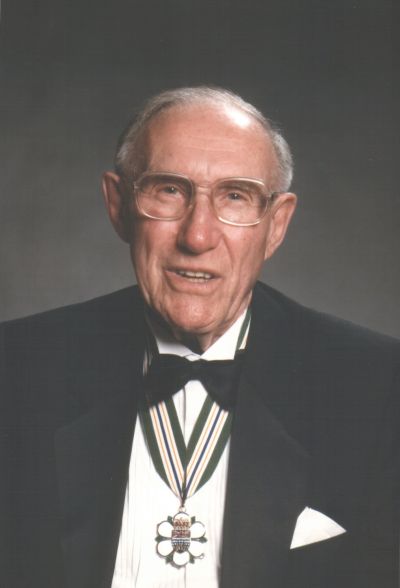
- Year: 1990
- City: Vancouver
- Region: Mainland/Southwest
- Category: Community Leadership
Alison Sydor
Alison Sydor of North Vancouver is one of the top mountain-bike racers in the world, with more wins than any other athlete in her sport. She won the silver medal for mountain biking in the 1996 Olympics in Atlanta and has put British Columbia on podiums all over the world showing her skills. She is the co-founder of Sprockids Shoreriders, a group dedicated to promoting mountain biking and bike racing as a sport for young people and getting them involved in the sport without prohibitive costs. Her dedication, spirit, desire and hard work make her a role model for young and old alike.
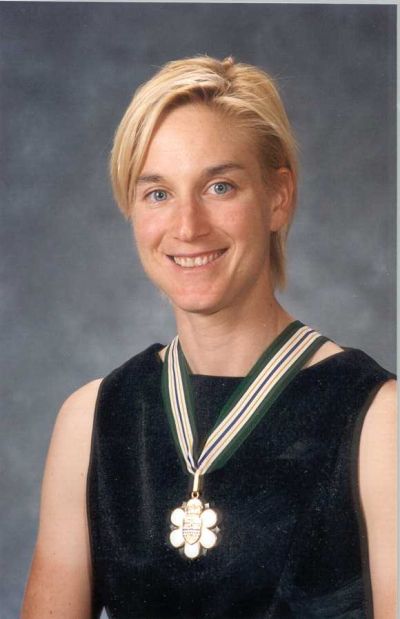
- Year: 1999
- City: North Vancouver
- Region: Mainland/Southwest
- Category: Sports and Recreation
* Denotes deceased. The Honours and Awards Secretariat relies on family members to notify us if members have passed.

